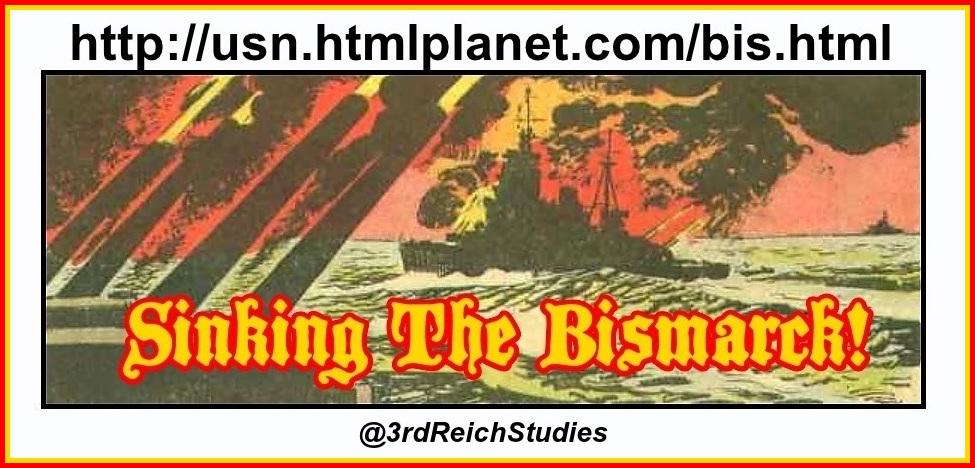December 2, 1941: Tokyo to Honolulu:
In view of the present situation, the presence in port of warships, airplane carriers, and cruisers is of utmost importance. Hereafter, to the utmost of your ability, let me know day by day. Wire me in each case whether or not there are any observation balloons above Pearl Harbor or if there are any indications that they will be sent up. Also advise me whether or not the warships are provided with anti-mine nets.
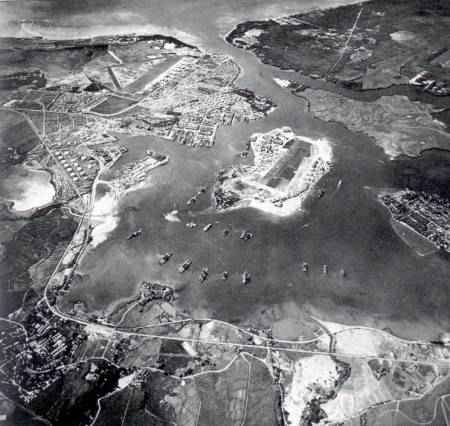
From American Caesar, by William Manchester: (A)s the 1930's drew to a close most American officers in the Philippines regarded conflict between the United States and Dai Nippon (literally Great Japan, as in Great Britain) as inevitable. But few of them doubted a swift US victory. Even (General Douglas) MacArthur was misled by racial chauvinism; when he saw the skill with which Japanese warplanes were flown in the first days of the war, he concluded that the pilots must be white men.
The Japanese, American's agreed, were a comical race. They wrote backwards and read backward. They built their houses from roof down and pulled, instead of pushing, their saws. Their baseball announcers gave the full count as "two and three." Department store bargain basements were on the top floor. Japanese women gave men gifts on Saint Valentine's Day. Papers were stapled in the upper right-hand corner. To open their locks you had to turn the key to the left. If they fell in the mud, they laughed; telling you of grave personal misfortunes, they grinned.
Japanese murderers apologized for messing up the house, and the Japanese host who received you in his home with exquisite courtesy might, upon meeting you on the street, shove you roughly into the gutter. They were stocky, bandy-legged, and buck-toothed. Their civilians wore crumpled hats, dark alpaca suits, and tinted glasses in public. Their soldiers suited up in uniforms resembling badly wrapped brown-paper parcels. The notion that they could shoot straight—not to mention lick red-blooded Americans—was regarded in Manila as preposterous.
December 2, 1941: From the Diary of Commander Sadamu Sanagi:
Admiral Yamamoto, Commander-in-Chief of the Combined Fleet, was summoned to audience by the Emperor, representing all navy commanders. (Dillon)
December 2, 1941: From the Duty Book of Captain Shigeshi Uchida:
A report came in to the effect that one [sic] Prince of Wales battleship has entered Singapore Harbor. (Dillon)
December 3, 1941: From the diary of Mussolini's son-in-law, Count Galeazzo Ciano, Foreign Minister of Italy:
Sensational move by Japan. The Ambassador asks for an audience with the Duce and reads him a long statement on the progress of the negotiations with America, concluding with the assertion that they have reached a dead end. Then invoking the appropriate clause in the Tripartite Pact, he asks that Italy declare war on America immediately after the outbreak of hostilities and proposes the signing of an agreement not to conclude
a separate peace... (IMT)
From the Diary of Commander Sadamu Sanagi:
Admiral Yamamoto left the official residence of the Navy Minister, receiving hearty send-offs...Hawaii area: Shore leaves of American sailors as usual. Reports from the Consul-General in Honolulu covering ships' locations in Pearl Harbor came successively from 2nd December. No particular change. The Fourteenth Naval District Commandant dispatched an urgent message at about noon (local time). It might be that drifting oil from our submarines was discovered. (Dillon)
December 3, 1941: Washington to Tokyo:
Judging from all indications, we feel that some joint military action between Great Britain and the United States, with or without a declaration of war, is a definite certainty in the event of an occupation of Thailand.
December 3, 1941: From the Diary of Rear Admiral Giichi Nakahara:
Yamamoto is now at the Combined Fleet, and he cannot leave the post until at least next May or June. (Dillon)
December 3, 1941: Rome to Tokyo:
MUSSOLINI said if that war broke out ITALY would give military support to the best of her power; that is to say she would do her best to keep the British Navy in the MEDITERRANEAN. Moreover GERMANY and ITALY together had recently established an air blockade and were trying to put further pressure an BRITAIN in the MEDITERRANEAN¡ ¡At this meeting MUSSOLINI asked me questions about the Russian question, and I therefore did not
refer to it. (Costello II)
From the Diary of Lieutenant Commander Chigusa (X0 of the destroyer
Akigumo):
Occasional rain. Dark clouds were hanging over the sea and our difficult navigation under strong wind was obliged to continue. We suffered from large rolls of 45 degrees to one side again and our oil supply operation was cancelled. 0400. As soon as we changed course to 145 degrees, some pitching commenced, and we noticed that the water-hammer became very strong. On the other hand, it now became warm from the rising temperature as our ship moved to the south. Information on the enemy's fleet in Hawaii was frequently broadcast to us by wireless. The morale of all the crew became higher and higher. Rice-curry was our lunch, and we had three pieces of Onigiri (a sticky rice-ball) for our supper. However, two of them were enough for me. I ate Onigiri with my fingers on the bridge. At dusk the wind fell below 10 m (20 kts) and the sea became fairly calm. But swells still remained. I served Shiruko for supper again.. I had a dream again in which I enjoyed life with my family.
December 3, 1941: From the war diary of the German naval attache in Tokyo:
1800 hours. The naval attache extended an invitation to several officers of the Japanese Naval Ministry. It transpires from the conversation that the negotiations in Washington must be regarded as having broken down completely and that, quite obviously, the beginning of actions to the south by the Japanese Armed Forces is to be expected in the near future.
December 4, 1941: Chief of Naval Operations to Commander-in-Chief, Pacific Fleet, Asiatic Fleet:
Highly reliable information has been received that categorical and urgent instructions were sent yesterday to the Japanese diplomatic and consular posts at Hong Kong, Singapore, Batavia, Manila, Washington, and London to destroy most of their codes and ciphers at once and to burn all other confidential and secret documents.
December 4, 1941: From the Diary of Lieutenant Commander Chigusa (X0 of the destroyer
Akigumo):
After a long interval, the sea became calm. 1000. The wind of 5 m (10 kts) changed to the northeast. A swell still remained, but I should say that the sea was calm. Occasional rain. We were supplied 95 T oil from the Toho Maru and it took 35 minutes for the operation. During the oil supply operation we got a signal "to be gifts" from Toho Maru. We threw a rope from my bridge to Toho Maru. The gifts from the Captain of Toho Maru to the Commanding Officer of Akigumo were American cigarettes which we received by rope ferry. It is really surprising that the cigarettes are American made, this is a curious gift....
December 4, 1941: The
Enterprise arrives at Midway to deliver some aircraft.
December 4, 1941: From the diary of Count Galeazzo Ciano, Foreign Minister of Italy:
Berlin's reaction to the Japanese move is extremely cautious. Perhaps they will accept because they cannot get out of it, but the idea of provoking America's intervention pleases the Germans less and less. Mussolini, on the other hand, is pleased about it. (IMT)
December 4, 1941: From the Duty Book of Captain Shigeshi Uchida:
In the morning our patrol planes sighted five submerged submarines 5 miles northeast of and 50 miles northwest of Palau Island. It was reported that the US Army ordered all fighters (aircraft) to be alert on 15 minutes' notice.
December 5, 1941: From the minutes of a Cabinet Meeting in Washington;
Secretary of the Navy Frank Knox: Well, we have very secret information that mustn't go outside this room that the Japanese fleet is out. They're out of harbor. They're out at sea...Every indication is that they are going south, Mr. President. That's the obvious direction (note: toward Malaya and the Dutch East Indies).
FDR: But it's not absolutely certain that they're not going north (note: presumably, Hawaii). You haven't got information with regard to direction.
Knox: That's right, we haven't, but we must conclude that they are going south. It is so unlikely that they would go north. (Polmar)
December 5, 1941: From the Diary of Lieutenant Commander Chigusa (X0 of the destroyer
Akigumo):
The 2nd Supply Division (consisting of three tankers, the Toho Maru, Toei Maru, and Nippon Maru and the destroyer Arare which escorted the Supply Division), parted from our Task Force and Fleet line to go west to point "L" to make preparations to supply oil to the Fleet on its return from Hawaii... ...All the crew of the Toho Maru which had followed Akigumo up to today stood side by side in orderly rows in Togenreishiki (Manning the side). I could see them clearly as they stood waving their caps to pray for our success, really unwilling to part from our Task Force.
At the same time I could see a flag signal on the yardarm of the Toho Maru which meant "We hope for your courageous and glorious success." All our crew were deeply moved by this farewell message. 0800. We had trial shooting our machine guns, firing 4 bullets each, which we smoothly performed... ...At last tomorrow we go straight to the south and boldly head for Pearl Harbor. Hereafter we will be close to the enemy's territory. We must take more strict precautions against enemy surveillance...
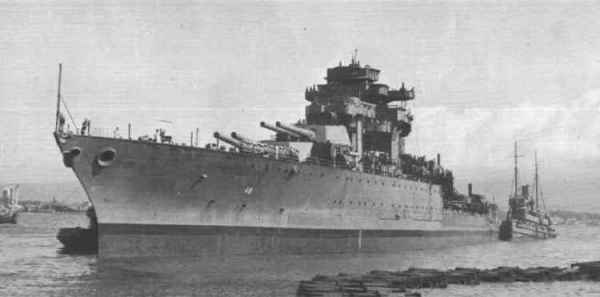
From the diary of Count Galeazzo Ciano, Foreign Minister of Italy:
A night interrupted by Ribbentrop's restlessness. After delaying 2 days, now he cannot wait a minute to answer the Japanese; and at three in the morning he sent Mackensen to my house to submit a plan for a triple agreement relative to Japanese intervention and the pledge not to make a separate peace. He wanted me to awaken the Duce, but I did not do so, and the latter was very glad I had not. (IMT)
December 5, 1941: Admiral Kimmel sends the USS
Lexington with a task force under Rear Admiral Newton to deliver 25 scout bombers to Midway Island
December 5, 1941: Washington to Tokyo
:
From Councilor of Embassy Iguchi to the Chief of the Communication Section: We have completed destruction of codes, but since the US-Japanese negotiations are still continuing I request your approval of our desire to delay for a while yet the destruction of the one code machine.
December 5, 1941: Rome to Tokyo
:
Accompanied by ARDO I had an interview with Foreign Minister CIANO on the 5th at his request. CIANO showed me the Italian text of the draft of a Three-Power Pact to which GERMANY and ITALY have agreed. BERLIN will have telegraphed this to you, I imagine, regarding participation in the war and not making an independent armistice or independent peace. He said that if the Japanese would agree to this it could be signed at any time. The procedure could be arranged by conversations between BERLIN and TOKYO and then all parties could sign. Repeated by telegram to BERLIN.
December 5, 1941: From the Duty Book of Captain Shigeshi Uchida:
In the evening a report came that our convoy of the Malay Force was sighted by a large-type British plane south of Saigon from 1345 to about 1500. The Malay Force commander then ordered the air force to shoot it down, but so far, it seems, that plane has not been shot down...The decision to shoot down tracking planes seems a bit premature. (Dillon)
December 5, 1941: From the Diary of Commander Sadamu Sanagi:
A Consul-General's report which had not come since 2nd December came again. Relaxed, but no carrier is in the harbor. No particular change was observed in the enemy radio traffic activities; the enemy in the Hawaii areas seemed quiet, without any knowledge of our intention. Although the Fourteenth Naval Commandant dispatched an urgent message on the 4th, no change was observed there. A Liaison Conference was held with regard to the time of dispatching the ultimatum to the United States of America. (Dillon)
December 6, 1941: Tokyo to Washington
:
1. The Government has deliberated deeply on the American proposal of the 26th of November and as a result we have drawn up a memorandum for the United States contained in my separate message.
2. This separate message is a very long one. I will send it in fourteen parts and I imagine you will receive it tomorrow. However, I am not sure. The situation is extremely delicate, and when you receive it I want you please to keep it secret for the time being.
3. Concerning the time of presenting this memorandum to the United States, I will wire you in a separate message. However, I want you in the meantime to put it in nicely drafted form and make every preparation to present it to the Americans just as soon as you receive instructions. (Costello II)
December 6, 1941: The FBI monitors an early morning telephone call in Japanese from a Dr. Mori in Honolulu to a Tokyo newspaper reporter. The message details such things as flying conditions around the islands, the number of searchlights and soldiers in town, and what ships are moored in Pearl Harbor. The Doctor then notes that the "Poinsettias and hibiscus" (obvious code words) are blooming in Honolulu. Translated by the FBI, the information ends up on the desk of General Short's intelligence officer by 4:00. Short, the Army half of the Army-Navy co-command at Pearl, is presented with the information at 5:30. His reaction is recorded: "The message was quite in order, that it described the situation in Hawaii as it was, and that possibly there was nothing very much to be excited about the content of the message."
December 6, 1941: Memorandum from the Imperial Government to the United States Government (Part 1 through 13), a review of Japanese/American relations to be delivered hours before the Pearl Harbor attack:
It is the immutable policy of the Japanese Government to insure the stability of East Asia and to promote world peace and thereby to enable all nations to find each its proper place in the world. Ever since China Affair broke out owing to the failure on the part of China to comprehend Japan's true intentions, the Japanese Government has striven for the restoration of peace and it has consistently exerted its best efforts to prevent the extension of war-like disturbances. It was also to that end that in September last year Japan concluded the Tripartite Pact with
Germany and Italy... (Costello II)
Memorandum from the Imperial Government to the United States Government (Part 14 of 14):
7. Obviously it is the intention of the American Government to conspire with Great Britain and other countries to obstruct Japan's efforts toward the establishment of peace through the creation of a new order in East Asia, and especially to preserve Anglo-American rights and interests by keeping Japan and China at war. This intention has been revealed clearly during the course of the present negotiation. Thus, the earnest hope of the Japanese Government to adjust Japanese-American relations and to preserve and promote the peace of the Pacific through cooperation with the American Government has finally been lost. The Japanese Government regrets to have to notify hereby the American Government that in view of the attitude of the American Government it cannot but consider that it is impossible to reach an agreement through further negotiations. (Costello II)
December 6, 1941: Averell Harriman (London) to Harry Hopkins (Washington):
The President should be informed of Churchill's belief that in the event of aggression by the Japanese it would be the policy of the British to postpone taking any action—even though this delay might involve some military sacrifice—until the President has taken such action as, under the circumstances, he considers best. Then Churchill will act "not within the hour but within the minute." I am seeing him again tomorrow. Let me know if there in anything special you want me to ask.
December 6, 1941: From the Diary of Lieutenant Commander Chigusa (X0 of the destroyer
Akigumo):
0700. The time has come. As soon as we received orders, Course 180 degrees and Speed 20 kts from the flagship, the Akagi, we immediately increased our speed to begin our dash true south to Pearl Harbor. Our large white waves together with those of the other consort ships of the Fleet marked our path and put us in high spirits...
0710. The signals flags "D-G" were gallantly hoisted high on the mast of the flagship, the Akagi, meaning: "The fate of the Japanese Empire will depend upon the issue of this battle, so please everyone exert yourself to the utmost." This was no doubt the direct order and instruction of Vice Admiral Nagumo, Commander-in-Chief of the Fleet Task Force. Were there any sailors not excited over the honor, as a member of the Task Force, of receiving this order? I have heard many times of that order given by the "Z" flag from Admiral Togo in the Japan Sea Battle against Russia in 1905. Now I have actually received the same order myself.
Following this we received an encouraging address from Admiral Yamamoto, Commander-in-Chief of the Great Fleet: "The fate of the Empire rests on this campaign. Please do all in your power so as to carry out your duties." We also had the gracious Imperial Rescript which was transmitted by the Commander-in-Chief of the Great Fleet through wireless. These messages were transmitted to all the crew of my ship by our Commanding Officer. Our morale grew higher every moment as our fleet was on the enemy's line to the south. We completed all remaining preparations for war and battle which had not been completed in the morning.
On receiving the order "Be well dressed," we changed to clean uniforms for battle. After that, both my ship and myself had completed our preparations for attack against the enemy at any time. .... I had felt very uneasy throughout the day, fearing that our enemy might observe our fleet dashing toward the south to Pearl Harbor, because today is really the last day before our combat. Our fleet continues on its bold dash throughout the night to close in upon Pearl Harbor bravely in rapid formation.
December 6, 1941: From the war diary of the German naval attache in Tokyo:
Conversation with Fregattenkapitaen Shiba.
1. Last week America offered a non-aggression pact between the United States, England, Russia and Japan. In view of the Tripartite Pact and the high counter-demands, Japan rejected this offer. Negotiations have therefore completely broken down.
2. The Armed Forces foresaw this development and consented to Kurusu's being sent only to impress the people with the fact that all means had been exhausted.
3. The Armed Forces have already decided 3 weeks ago that war is inevitable, even if the United States at the last minute should make substantial concessions. Appropriate measures are under way. ....
No exact details are available as to the zero hour for the commencement of the southern offensive. All the evidence, however, indicates that it may be expected to start within 3 weeks, with simultaneous attacks on Siam, the Philippines and Borneo
6. The Ambassador has no knowledge of the transmission of the telegram, but is acquainted with its contents. ....A state of war with Britain and America would certainly exist by Christmas.
From German Admiral Schulte-Monting's IMT testimony: We had no contact with the Japanese experts or attaches in Berlin. I asserted that we first learned of the Pearl Harbor incident by radio, and I cannot quite see what difference it makes whether on 6 December the attache in Tokyo told us his predictions, or whether he was drawing conclusions about a future conflict from information sources which we could not control. That has nothing to do with our having advised the Japanese in Berlin to attack America. ....
To my knowledge there were no official conferences between the two admiralty staffs, that is, official operational conferences between the Naval Operations Staff and the Japanese admiralty staff. .... 2 days before the attack on Pearl Harbor we received a telegram from Tokyo to the effect that a conflict was to be counted on. I was asked whether we had known of the fact of the attack on Pearl Harbor, and to that I said: "No." I said that we had had no conferences in Berlin between the Naval Operations Staff and the Japanese admiralty staff.
December 6, 1941: From the Duty Book of Captain Shigeshi Uchida:
At 1020 our army plane shot down a British plane tracking our Malay invasion force. All members of the section stayed in the NGS the night of the 7th (except Prince Takamatsu and Marquis Katcho). (News also came in that at Wake Island 12 aircraft were on the land airdrome and 6 flying boats were also at Wake. (Dillon)
December 6, 1941: German forces are pushed back by a major Russian counter-attack near Moscow. With supply lines badly over-stretched—and temperatures of -34C (-29F) and below making German equipment nearly useless—even Adolf Hitler himself begins to realize that he has horribly underestimated Soviet strength. What the German Fuehrer needs now is a game-changer.
December 6, 1941: From the Diary of Commander Sadamu Sanagi:
A Consul-General report; in the harbor, nine battleships, but neither a carrier nor a heavy cruiser. (Dillon)
December 7, 1941: The
Enterprise task force gets underway to return to Pearl Harbor.
December 7, 1941: From the Diary of Lieutenant Commander Chigusa (X0 of the destroyer
Akigumo):
Now we are in the very day to which we have been looking forward to so eagerly. That is, the long-cherished "X" day for the outbreak of war now offers itself. (Note: All times for Chigusa's Diary entries above are Tokyo time, though the dates throughout are Hawaiian time. All further time and date entries below are in Hawaiian time.)
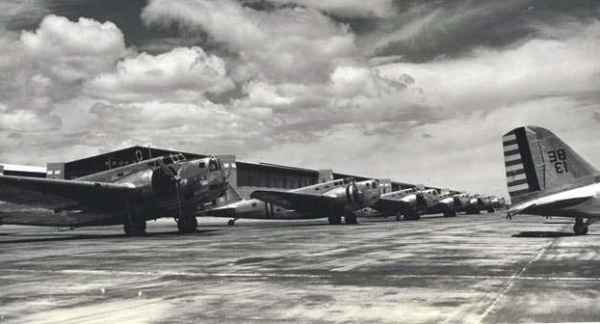
From The Columbia History of the World, edited by John A. Garraty and Peter Gay: The Western democracies opposed each new step in Japan's expansion. Growing friction with them caused the Far Eastern crises to become part of a world confrontation between fascism and its enemies. Japan joined the Rome-Berlin Axis in 1940 more from a perception that she shared common foes with European fascists than from any fundamental community of positive goals. The pact further deepened American hostility, yet the United States still permitted the export of strategic materials to Japan until the following summer, fearing that to embargo them would only trigger Japanese seizure of new sources of supply in Southeast Asia. When Japan did occupy Indochina, in prelude to further threats southward, America responded with a general embargo. In ensuing negotiations aimed at reducing the tension the two sides made mutually incompatible demands: Japan, that the United States recognize her position in China; and the United States, that Japan withdraw from China. The Pearl Harbor attack on December 7, 1941, was a preemptive strike, based on the premise that the United States was already irrevocably committed to resist those actions of Japan in East Asia that had by then become the unalterable conditions of her national policy.
December 7, 1941: The Japanese attack force under the command of Admiral Nagumo, consisting of six carriers with 423 planes, prepares to attack the US Pacific Fleet at Pearl Harbor.
3:42 AM: The US minesweeper
Condor sights a submarine periscope off Honolulu Harbor.
3:57 AM: The
Condor sends a message to the destroyer Ward: "Sighted submerged submarine on westerly course, speed 9 knots."
4:58 AM: The minesweepers
Crossbill and
Condor enter Pearl Harbor.
5:30 AM Chigusa's Diary
:
As soon as all the crew jumped out of their beds on the order to "Get up," they went hurriedly to their combat quarters. The bow of my ship was covered with splashes from waves raised by the strong east wind of 14 m-15 m (29 kts-30 kts).
6:00 AM: 200 miles south of Oahu the USS
Enterprise launches 18 aircraft to scout ahead to Ford Island, Pearl Harbor.
6:00 AM Chigusa's Diary
:
We could hear the sounds of the propellers as trial runs were made by the planes on board aircraft carriers. They had begun their preparations for their sally against Pearl Harbor.
6:10 AM: 220 miles north of Oahu, Admiral Nagumo begins launching the first attack wave of 183 Japanese aircraft; two are lost during takeoff.
6:30 AM Chigusa's Diary
:
Just before dawn all planes on the flight decks of our carriers began launching one by one. This was a gallant scene, launching the first group of the air attack force. We felt rather confident seeing the planes flying to their rendezvous points, passing close to the Akigumo one after another. All our crew waved to the planes as they were flying past our upper deck, giving them our prayers "Do it as a favor to us" by waving our caps at them. I noticed that I was waving my cap vigorously and unconsciously from my position on the bridge. By and by the first group launched and joined in a formation of 183 planes, and they soon disappeared into the southern sky.
6:30 AM: The destroyer USS
Ward is again notified of the submarine sighting, this time by the supply ship
Antares off the entrance of Pearl Harbor. A US Navy patrol plane (PBY) is dispatched to the scene.
6:45 AM: After searching for hours, The USS
Ward drops depth charges and opens fire on a submarine conning tower, sinking the sub.
6:53 AM: The
Ward's commander, Captain Outerbridge, sends a message to the Commandant of the 14th Naval District: "We have been attacked; fired upon and dropped depth charges upon submarine operating in defensive sea area."
7:00 AM: Commander Fuchida, flying towards Oahu, directs his pilots to home in on a local radio station.
7:02 AM: Privates Lockhard and Elliott of Opana Radar Station at Oahu detect the Japanese air attack approaching and contact a junior officer who disregards their reports, thinking they are American B-17 planes which are expected in from the US west coast.
7:15 AM: A second attack wave of 167 planes takes off from the Japanese carriers and heads for Pearl Harbor.
7:15 AM: Outerbridge's attack message, delayed in decoding, is delivered to the duty officer of the 14th Naval District, and to Admiral Kimmel's duty officer.
7:30 AM: Meanwhile, the Japanese Invasion of Malaya begins as 5,200 troops of the Takumi Detachment storm the beach, with heavy losses: The Battle of Kota Bharu.
7:33 AM: Marshall's warning is received at the Western Union office in Honolulu.
7:35 AM: A reconnaissance plane from the cruiser
Chikuma reports that the main US fleet is in port.
7:45 AM Chigusa's Diary
:
The second group of 167 attack planes started their launch one by one...I saw all the planes off, earnestly wishing them "The best of luck." .... Turning my eyes to the sky, in the distance a group would go into formation and vanish one after another into the southern sky. Since it had now come to this, the reports of news from our planes would be the only thing to which I could now look forward. The first news came from one of our patrol planes. 'No ships of the enemy's fleet are in Lahaina berth, but eleven capital ships are in Pearl Harbor." The above was the first report from our own airplanes. All our crew were so anxious to hear from our attacking force that they stood without moving an inch, glaring into the southern sky.
7:49 AM: Commander Fuchida gives the final order for the attack.
7:53 AM: The first Japanese assault wave, with 51 "Val" dive bombers, 40 "Kate" torpedo bombers, 50 high level bombers and 43 "Zero" fighters, commences the attack with flight commander, Mitsuo Fuchida, sounding the battle cry: "Tiger! Tiger! Tiger!" (Tora! Tora! Tora!).
8:00 AM: Meanwhile, the Japanese invade Hong Kong with 52,000 troops.
8:00 AM: B-17's from the US mainland, after a 14 hour flight, and aircraft from the carrier
Enterprise, are caught between enemy and friendly fire as they arrive at Ford Island.
From And I Was There: Pearl Harbor and Midway—Breaking the Secrets, by Edwin T. Layton: Kimmel stood by the window of his office at the submarine base, his jaw set in stony anguish. As he watched the disaster across the harbor unfold with terrible fury, a spent .50 caliber machine gun bullet crashed through the glass. It brushed the admiral before it clanged to the floor. It cut his white jacket and raised a welt on his chest. "It would have been merciful had it killed me," Kimmel murmured to his communications officer.
8:02 AM: A missile tears a huge hole in the battleship
Nevada's port bow as her machine guns open fire on the torpedo planes.
8:05 AM: High level bombers begin their run "on both bows" of battleship row.
8:05 AM: The repair ship
Vestal, moored outboard of the battleship
Arizona opens fire. Admiral Kimmel arrives at CINCPAC headquarters.
8:05 AM: The battleship
California receives a second torpedo "portside at frame 110."
8:08 AM: KGMB radio interrupts their music program and announces: "All Army, Navy, and Marine personnel to report to duty."
8:10 AM: A 1,763-lb. missile fired by PO Kanai Noboru hits the
Arizona. Forward magazines on the battleship suddenly ignite, resulting in a tremendous explosion and huge fireball that sinks the battleship within nine minutes.
8:12 AM: General Short advises the entire Pacific Fleet and Washington that: "Hostilities with Japan commenced with air raid on Pearl Harbor."
8:17 AM: The USS
Helm, the first of several destroyers to clear the harbor, spots a midget submarine stuck on a reef. The
Helm fires at the sub struggling to enter harbor, but misses the target.
8:26 AM: Three firemen are killed and six wounded when the Honolulu Fire Department responds to a call for assistance from Hickam Field.
8:35 AM Chigusa's Diary
:
The first battle report from our air attack force to come in was by code Tora, Tora, Tora Then: "Succeeded in our surprise attack. Our raid direction was 60 degrees. Attacked the main force with torpedoes. Had a great effect." Following is a second messenger (that) came from the bomber group "Bombed the enemy's main force. It has been quite successful."
8:39 AM: The seaplane tender, USS
Curtis, sights a midget sub in harbor and commences to fire. The destroyer USS
Monaghan closes with the intruder at ramming speed.
8:40 AM: A Japanese submarine surfaces after she begins to take on water. The destroyer USS
Monaghan rams the sub and drops depth charges when she tries to get away.
8:50 AM: Lt. Commander Shimazaki orders the deployment of the second attack wave.
8:54 AM: As 54 high-level bombers hit the Naval air stations, 78 dive bombers target battleship row while 36 fighters circle over the harbor to maintain air control.
8:55 AM Chigusa's Diary
:
We received the following wireless: "We have received the enemy's defensive gunfire." News of the attack on each enemy air base from each air group flew into our fleet one after another. Although I was always stationed at the "top" (the fire control tower) in this period and it was ready for firing at any moment, since we expected to receive a counterattack by the US Air Force without doubt, I couldn't see even one plane of the enemy's counterattack. I was really surprised by this and I had such a strange feeling, thinking, "How simple war really is!"
9:00 AM: The first US Ally to join the fight, the Dutch liner
Jagersfontein, opens fire on the attackers.
9:30 AM: A huge explosion completely obliterates the destroyer
USS Shaw.
10:00 AM: 190 miles north of Oahu, the first attack wave arrives back on the Japanese carriers.
11:00 AM: Commander Fuchida circles over Pearl Harbor, assesses the damage, and then returns to the carrier task force.
12:10 PM: American planes fly north in search of the enemy with negative results.
12:30 PM: The Honolulu police raid the Japanese embassy and find the diplomats busily burning documents.
12:40 PM: Hawaiian Governor Poindexter speaks with President Roosevelt by phone. The two agree that a declaration of Martial Law would be a prudent action.
1:30 PM Chigusa's Diary
:
As soon as we had accommodated all the planes that returned to their mother ships, our Task Force headed straight north at high speed of 26 kts (This is the highest speed we reached in this operation). A heavy spray covered the bow as we increased our speed due to the high waves and swells.
2:00 PM: Commander Fuchida lands on board the carrier
Akagi. Admiral Nagumo and his staff confer with Fuchida concerning the feasibility of launching a third wave.
2:30 PM: Signal flags on the carrier
Akagi orders the Japanese task force to withdraw.
2:30 PM: In Washington, the Japanese diplomats are presenting their war message to Secretary of State Cordell Hull, just as he is reading the first reports of the air raid at Pearl Harbor.
16:25 PM
: Hawaiian Governor Poindexter signs a Proclamation of Martial Law.
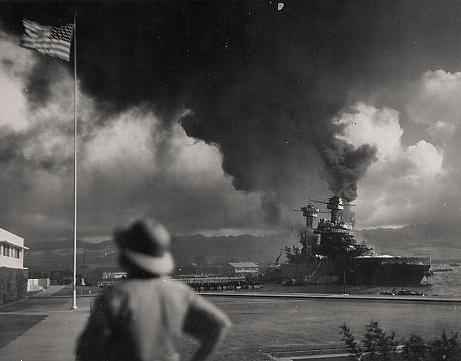
From Washington Goes to War, by David Huntley: It may be that at historic moments of stunning surprise or extraordinary stress, great leaders utter stately and sonorous phrases suitable for future preservation on granite slabs. But Roosevelt's response on hearing the Japanese had attacked Pearl Harbor was a good deal less than stately. His response was, "No!" ....
Roosevelt called Secretary of State Hull, who was at that moment receiving the Japanese ambassador in his office at the State, War and Navy Building next door to the White House. He told Hull the news and instructed him to treat the Japanese coolly. Japan's ambassador, Kichisaburo Nomura, arrived at Hull's office late because, it was learned later, his embassy staff had been drinking Scotch whisky all night and the translators were still drunk the next morning. They had to struggle to get Tokyo's message into English for Hull to read. When the ambassador and an aide came in, Hull did not treat them coolly. He called them "bastards" and "pissants." They left, running awkwardly down the corridors trying to escape the press and photographers.
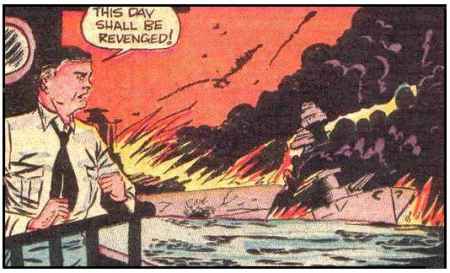
2,335 servicemen and 68 civilians killed, 1,178 wounded.
Japanese Casualties: Twenty-nine planes fail to return to their carriers; less than 10 percent of the attacking is force lost.
December 7, 1941: Just hours after the attack on Pearl Harbor, Wake Island is attacked by Japanese forces.
December 7, 1941: From the Diary of Captain Shigeshi Uchida:
At 0325 came in a flash of Tora, Tora, Tora! which meant "A surprise attack made." With this news all members became wild with joy. In the morning a toast was drunk for the success of the PH operation. (Dillon)
December 7, 1941: Harry Hopkins is sharing lunch with his President when the first word of the Pearl Harbor attack comes in. This is how, perhaps with one eye on history, he records FDR's reaction in his diary: "The President discussed at some length his efforts to keep the country out of the war and his earnest desire to complete his administration without war, but that if this action of Japan's were true it would take the matter entirely out of his own hands, because the Japanese had made the decision for him." (Jenkins II)
December 7, 1941: Churchill, in his memoirs, relates his phone conversation this day with FDR:
In two or three minutes Mr. Roosevelt came through. "Mr. President, what's this about Japan?" "It's quite true," he replied. "They have attacked us at Pearl Harbor. We are all in the same boat now." [Note: unintentional black humor]. No American will think it wrong of me if I proclaim that to have the United States at our side was to me the greatest joy. I could not foretell the course of events. I do not pretend to have measured accurately the martial might of Japan, but now at this very moment I knew the United States was in the war, up to the neck and in to the death.
So we had won after all! Yes, after Dunkirk; after the fall of France; after the horrible episode of Oran; after the threat of invasion, when, apart from the Air and the Navy, we were an almost unarmed people; after the deadly struggle of the U-boat war—the first Battle of the Atlantic, gained by a hand's-breadth; after seventeen months of lonely fighting and nineteen months of my responsibility in dire stress. We had won the war. England would live; Britain would live; the Commonwealth of Nations and the Empire would live. How long the war would last or in what fashion it would end no man could tell, nor did I at this moment care. Once again in our long Island history we should emerge, however mauled or mutilated, safe and victorious. We should not be wiped out. Our history would not come to an end. We might not even have to die as individuals. Hitler's fate was sealed. Mussolini's fate was sealed. As for the Japanese, they would be ground to powder. (Churchill)
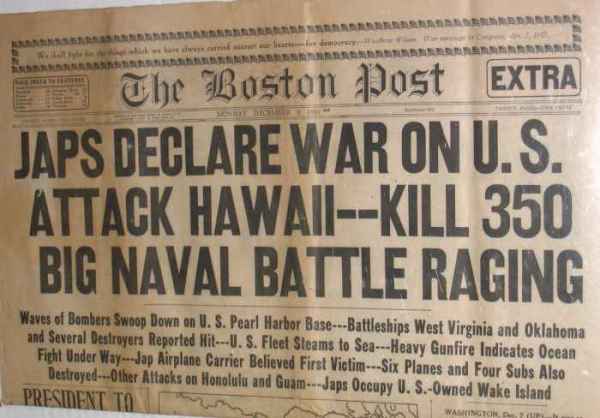
From the diary of the famed aviator—and convinced isolationist—Charles Lindbergh:
An attack in the Philippenes [sic] was to be expected, although I did not think it would come so soon. But Pearl Harbor! How did the Japs get close enough, and where is our Navy?
December 7, 1941 Chigusa's Diary
:
1530: On the interception of a cipher, one of our submarines reported the enemy's wireless message that was given to all ships from the flagship of the Pacific Fleet, USN: "The signal direction looks like an enemy carrier is positioned in the true north." I wondered if the enemy would now detect the location of our fleet. .... The Akigumo escorted the aircraft carrier Zuikaku all day long today. I was glad the planes of the Zuikaku could return safely to their mother ship without loss of a single plane, in response to our prayers. However, 13 of them (58 planes from Zuikaku were engaged in battle) had barely made their way homeward, having received damage from enemy bullets.
From Raeder's IMT testimony: It was a complete surprise for me and the Naval Operations Staff that this attack (on Pearl Harbor) took place; and it is a complete mistake in judging the mentality of the Japanese to assume that they would have spoken of such a plan to anyone, even inside Japan, who was not directly connected with it. In 1904 they likewise attacked Russian ships "out of the blue" without anyone suspecting anything at all.
From Schulte-Monting's IMT testimony: We never had any military discussions with Japan at all before her entry into the war. Quite on the contrary, he [Raeder] warned Hitler against war with America in view of England's naval superiority and her co-operation with America. ....
First of all, for the reasons which I outlined before, reasons of over-all strategy which motivated Raeder during the entire course of the war. Raeder considered the enemy on the sea primarily, and not on land. If the largest sea power in the world were added to England, which was already superior, then the war would have taken on unbearable proportions for us. Besides, through the reports of our naval attache in Washington, Vice Admiral Witthoft, Raeder was very well informed about the tremendous potential at the disposal of the United States.
I might also say with reference to the conversion of the normal economy into a war economy, that the tremendous outlay of shipyards and installations, as Witthoft stated a few months before the war, permitted the construction of a million tons of shipping each month. These figures were very eloquent and were naturally at the same time a terrible warning to us not to underestimate the armament potential of the United States. ....
In my opinion, that was an absolutely correct measure (to proposed [sic] that Japan should attack Singapore) and a correct proposal, which was in line with Raeder's reasoning. He was interested in dealing blows to England's important strategic centers. That he tried to ease our situation is understandable and self-evident. But at no time did he propose that Japan should enter into a war against America, but rather against England. .... I have already stated that before Japan's entry into the war no military discussions with Japan had ever taken place. The Japanese attitude was very reserved. .... We heard about this (Pearl Harbor) for the first time over the radio.
December 7, 1941: From the Duty Book of Captain Shigeshi Uchida:
At 0330 (Note: Times and dates are Tokyo time.) a message "Surprise attack made, time 0322" came in. Prior to this, past 0200, a report came in that the Advance Force of the Malaya Force entered the landing berth at 0045 and began landing at 0130. At 0320 the operation against Hong Kong commenced. Due to thick fog, our planes at Formosa did not take off until 0900. At 0045 Clark Field ordered its base to place all fighter on 15 minutes' notice alert. At 0537 MacKay Radio at Manila broadcast that Manila was bombed. At 0535 came a report that Singapore was bombed with good results. At 0415 the US Asiatic Fleet ordered 'Alert.' At 0430 the US Secretary of the Navy ordered US Navy forces to fight the Japanese forces. At 0800 came a report that Guam was attacked. At 0820 a radio calling for sweeping of magnetic mines was intercepted. Our midget submarines seem to have entered Pearl Harbor. At 0842 Davao was bombed.
At 1300, according to radio interception, the enemy mistook six transports west of Barber's Point for Japanese ships and gave orders to sink them. How they were put in confusion could be seen. At 1430. According to the Buenos Aires reports, the West Virginia was sunk and Oklahoma was burning. At 105 the C-in-C of the US Pacific Fleet gave orders in a plain language message to cease firing on aircraft. At about 1930 a brief action report came in from the Task Force. It said: Two battleships—they seem to be West Virginia and Oklahoma—were sunk and four other battleships severely damaged, and our cruisers also greatly damaged. In addition, one carrier seems to be sunk off Honolulu. At 1850 the half section of the 7th Destroyer Division bombarded Midway Island and destroyed oil tanks and hangers. Enemy counter-firing was met but without damage. We were all wild with joy receiving such big news on the first day of the war. Today's weather was fine and warm, as if it foreshadows the future of the war. (Dillon)
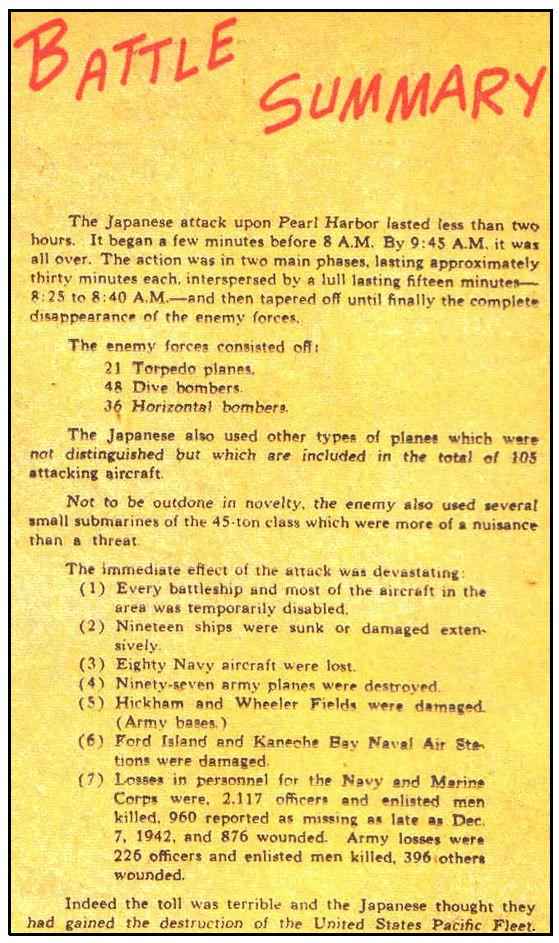
From the Diary of Commander Sadamu Sanagi:
Every nerve has been concentrated to receive messages. It was not until 0330 that messages began to come in. Wild joy burst out with the news of "Tora, Tora..." and "successful surprise attack." Relaxed receiving the news of "bombed the enemy main strength with good results" and "torpedoed enemy heavy cruisers; heavy damage inflicted." How the enemy was surprised can be easily imagined by such a Task Force's message as saying that they were encountered by enemy defense gunfire only after the torpedo attacks. The enemy in the Hawaii area had been completely surprised at about 0730 on Sunday morning. The following messages received suffice to indicate how they were surprised: "Wipe out magnetic mines and mooring mines in East Loch." Attacks by midget submarines might be successful. Every message was sent in plain code...
By 0900 the enemy seemed to have detected our carriers by means of radio-direction-finding instruments to the north. Our air force, together with the submarine force, achieved a great success unprecedented in history by the Pearl Harbor attack. About 400 planes, of which 120 are fighters, 160 dive bombers and 120 torpedo-attacking planes...The surprise attack coupled with submarine attacks by the midget submarines solely contributed to this successful attack, which could only be done by the Imperial Navy. This success is owing to the Imperial Navy's hard training for more than twenty years. Our navy made this hard training only for this one day. So excited to hear of this success today! Nothing could hold back our Imperial Navy which had kept silent for a long time. But once it arose, it never hesitated to dare to do the most difficult thing on this earth. Oh, how powerful is the Imperial Navy. (Dillon)
From Operation Drumbeat: The Dramatic True Story of Germany's First U-boat Attacks Along the American Coast in World War II, by Michael Gannon: It was night when the message from B-Dienst, the radio intelligence service of the German Navy, reached Adolf Hitler's underground bunker at the Wolfsschanze (Wolf's Lair) field headquarters near Rastenburg, deep in the Goerlitz forest of East Prussia. When he read it the Fuehrer was stunned: JAPAN BEGAN HOSTILITIES AGAINST THE UNITED STATES ON 7 DECEMBER. AT 1930 HOURS CENTRAL EUROPEAN TIME STRONG AIR FORMATIONS ATTACKED PEARL HARBOR (HONOLULU). A declaration of war might have been expected, but a carrier strike across 3,200 miles of open sea against the American main battle fleet?
If at that moment Hitler recalled the maxim of Frederick the Great, whom he claimed to emulate—"It is pardonable to be defeated but never to be surprised"—he knew that the muse of history was not likely to absolve him. The master of Europe was caught completely by surprise. The same message but with additional details of US warship and aircraft losses...was read with equal amazement by Admiral Karl Doenitz (commander in chief, U-boats). Doenitz went straight to his Situation Room and moved his dividers across the three-foot-diameter world globe that he used for rapid-distance calculation. From the principal U-boat base at Lorient he tracked the Great Circle distance to New York City on the East Coast of the United States—distance: 3,000 nautical miles. ....
It was the East Coast of the United States...that interested Doenitz most. A strike there would have much the same effect as the Japanese had had at Hawaii, revealing American vulnerability to a determined military foe. It would intimidate US defenses and humiliate the civilian population. Most important, if followed by additional and unremitting strikes during the period when US naval and air forces could still be expected to be weak and inexperienced, the operation could result in damage to the US and Allied war effort far exceeding the damage wreaked at Pearl Harbor. Lost in the anchorage at Hawaii, it appeared from the news flash, were aged, slow warships, obsolescent by the standards of the new capital ships of the German Fleet; lost on the United States' Atlantic doorstep, which contained the busiest sea-lanes in the world, would be a significant part of the merchant lifeblood that was keeping England in the war, not to mention fueling the United States' own nascent war industries...
The commander in chief knew that all his commanders would be of one mind with him: The Americans must be made to pay for their false neutrality; for their arrogance in declaring four-fifths of the Atlantic to be part of the Western Hemisphere; for their sighting reports on U-boats to British destroyers; and for their hitherto-untouchable convoys of war material and food to enemy England. .... When the Fuehrer declared war on the United States, as he soon must, Doenitz would be poised to strike a blow against the United States as sudden and as jarring as a beat on a kettledrum.
December 7, 1941: Berlin to Tokyo:
At 11PM today, the 7th, I received a radio report that hostilities had broken out between JAPAN and AMERICA, and at once called RIBBENTROP. He said from reports he too had received he thought this was true, and that, therefore, although he had not yet secured HITLER’s sanction, the immediate participation in the war by GERMANY and ITALY was a matter of course… RIBBENTROP said he would discuss with me tomorrow, the 8th, about the time of publication of this declaration and so on. RIBBENTROP rang up CIANO then and there and notified him of the foregoing.
From In Search of History, by Theodore H. White: That Sunday afternoon I was writing a rehash of the tensions in Asia, shaped by my conviction that, no matter what the Japanese were saying in Washington, we would have to fight them, when the telephone rang. One of my office mates, James Aldridge, who later quit journalism to write novels, lifted the phone, let it drop, and yelled, "Jesus Christ! The Japs are bombing Pearl Harbor; it's on the radio." We rushed to the news ticker, and it was hammering out a bulletin: Flash...White House Says Japs Attack Pearl Harbor.
We went back to our office and we looked out the windows from our tower in Rockefeller Center. Down below was the jostle of a Sunday afternoon in mid Manhattan, the streets crowded with automobiles of parents showing their children the Christmas trees and holiday sights of the great city. We made paper airplanes and sent messages sailing through the air to the streets below, saying: "We are at war," or "We are at war with Japan," or "The Japanese are bombing America." We were gleeful; I most of all. In that first hour none of us knew how badly the American fleet had been damaged at Pearl Harbor. But it was the right war, a good war, and it had to be fought and won. This is the only conviction of mine that has lasted unchanged for thirty-five years: it was better for America to have fought that war and won, than to have let the world be taken by those who killed and had no shame in killing.
December 7, 1941: The FBI, with the assistance of local police, begin detaining members of the Issei leadership of the Japanese American communities in Hawaii and on the US mainland. (Niiya)
From Silent Missions, by Vernon A. Walters: The next thing I remembered was Lieutenant Romano shaking me by the shoulder and saying, "Walters, get up. We are at war." "With Germany?" I asked and he replied that we were at war with Japan, who had attacked Pearl Harbor that morning. I was surprised because I knew that our Navy had been convoying supplies to Britain and shooting at German submarines on sight, but I had not sensed the imminence of war in Asia. I had always believed that it was far more likely that we would become involved in Germany first.
December 8, 1941 Imperial Rescript on the Declaration of War:
We, by grace of heaven, Emperor of Japan, seated on the throne of a line unbroken for ages eternal, enjoin upon ye, our loyal and brave subjects: We hereby declare war on the United States of America and the British Empire. The men and officers of our Army and Navy shall do their utmost in prosecuting the war, our public servants of various departments shall perform faithfully and diligently their appointed tasks, and all other subjects of ours shall pursue their respective duties; the entire nation with a united will shall mobilize their total strength so that nothing will miscarry in the attainment of
our war aims... The Japanese invade Hong Kong with 52,000 troops.
December 8, 1941: Guam is invaded by the armed forces of Japan.
December 8, 1941: From the Diary of Lieutenant Commander Chigusa (X0 of the destroyer
Akigumo):
Patrols over a wide area by our airplanes were continued from early morning, but not a sign of the enemy was to be seen. On a course of 360 degrees, we continued north at a speed of 26 kts throughout today. In spite of the rough sea, three patrol planes somehow made a forced "ditch." The Akigumo went to the rescue of our plane; all the crew were fortunately recovered safely. In the evening the Akigumo met the Kyokuto Maru, from which 250 T oil (the largest quantity transferred during this operation) supplied at 12 kts speed in rough swells. It took one and a half hours, so we could scarcely finish the supply working until 2330.
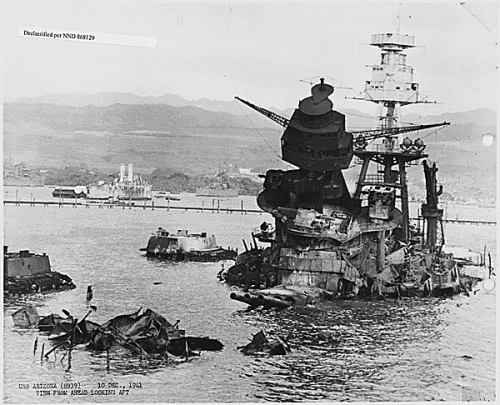
From Ribbentrop's IMT testimony: At the time I tried to induce Japan to attack Singapore, because it was impossible to make peace with England and I did not know what military measures we could take to achieve this end. In any case, the Fuehrer directed me to do everything I could in the diplomatic field to weaken England's position and thus achieve peace. We believed that this could best be done through an attack by Japan on England's strong position in East Asia. For that reason I tried to induce Japan, at that time, to attack Singapore. After the outbreak of the Russo-German war, I also tried to make Japan attack Russia, for I thought that in this way the war could be ended most speedily.
Japan, however, did not do that. She did the—she did neither of the things we wanted her to do, but instead, she did a third. She attacked the United States at Pearl Harbor. This attack came as a complete surprise to us. We had considered the possibility of Japan's attacking Singapore, that is England, or perhaps Hong Kong, but we never considered an attack on the United States as being to our advantage. We knew that in the case of an attack on England, there was a possibility that the United States might intervene; that was a question which, naturally, we had often considered. We hoped very much, however, that this would not happen and that America would not intervene. The first news I received of the attack on Pearl Harbor was through the Berlin press, and then from the Japanese Ambassador Oshima. I should like to say under oath that all other reports, versions, or documentary evidence are entirely false. I would like to go even further to state that the attack came as a surprise even to the Japanese Ambassador—at least he told me that.
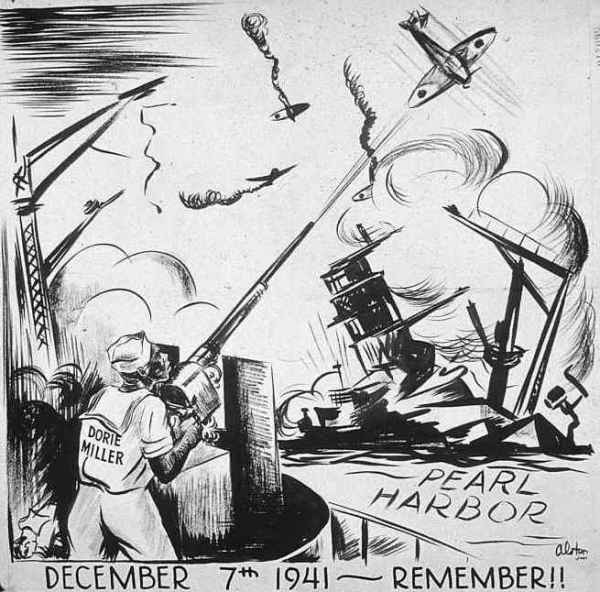
From the US Ambassador to Japan (Joseph Grew) to the US Secretary of State:
At seven this morning the Foreign Minister asked that I call at his official residence. There he handed to me a memorandum of today's date. The Foreign Minister said it had been transmitted to Washington for the Japanese Ambassador to present this morning to you (Washington time, evening of December 7). The Foreign Minister said that the Japanese Emperor desired this memorandum to be considered as his reply to the message of President Roosevelt. The following oral statement was then made to me by the Foreign Minister:
"His Majesty has expressed his gratefulness and appreciation for the cordial message of the President. He has graciously let known he wishes to the Foreign Minister to convey the following to the President as a reply to the latter's message: Some days ago, the President made inquiries regarding the circumstances of the augmentation of Japanese forces in French Indo-china to which His Majesty has directed the Government to reply. Withdrawal of Japanese forces from French Indochina constitute one of the subject matters of the Japanese-American negotiation; His Majesty has commanded the Government to state its views to the American Government also on this question. It is, therefore, desire [sic] that the President will kindly refer to this reply. Establishment of peace in the Pacific, and consequently of the world, has been the cherished desire of His Majesty for the realization of which he has hitherto made his Government to [sic] continue its earnest endeavors. His Majesty trusts that the President is fully aware of this fact."
December 8, 1941: From the
Manchester Guardian:
The Japanese, without any warning, yesterday afternoon began war on the United States with air attacks on the naval base at Pearl Harbor, Hawaii, and the adjacent city of Honolulu. Imperial Headquarters in Tokyo later announced that Japan had entered into a state of war with Britain and the United States in the Western Pacific from 6 AM. today. President Roosevelt has mobilized the Army and ordered all the armed forces to take up their war stations and imposed a censorship. As more than 150 planes took part in the attacks on Pearl Harbor and Honolulu, it is thought that there must be at least three Japanese aircraft-carriers, and probably more, engaged. Several planes were shot down. Considerable damage was done at Pearl Harbour and there were numerous casualties. It is officially announced that the Army casualties were 104 killed and 300 wounded. It is thought that these occurred when the airfield was hit. The civilian casualties are unknown.
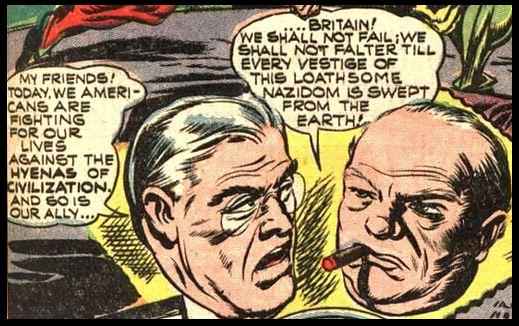
From Churchill: A Biography, by R. Jenkins: Churchill saw no way of winning the war without full American participation. His 'give us the tools and we will finish the job' broadcast of 9 February 1941 was a piece of tactical phrasing and not of hard truth. The most that he really meant was 'give us the tools and we will hold on long enough for you to take your time about coming in.' It was therefore a moment of unalloyed joy when he heard the news of Pearl Harbor. He was at Checquers, dining with Winant and Harriman. This was typical of the priority which he was giving Anglo-American relations and the timing was convenient as things turned out.
Ironically they had to restrain him from immediately on hearing the first sound bulletin telephoning the Foreign Office and telling them to declare war on Japan. It was pointed out to him that he could hardly do this on the basis of an unconfirmed news item. It contrasted with Roosevelt's greater caution (although he did not have Churchill's unfettered executive powers in matters of peace or war) which meant that America was not at war with Germany—or Italy—until four days later, when it was Berlin and Rome —not Washington—which took the initiative to involve the United States in the European war...After December 1941, whatever the vicissitudes, he did not doubt the ultimate outcome. Of course he regretted the severe American naval losses. But they were as nothing compared with the gain of having the full potential might of the United States irreversibly committed to the cause for which he had been fighting.
December 8, 1941: America First issues a statement drafted by isolationist leader Charles Lindbergh:
We have been stepping closer to war for many months. Now it has come and we must meet it as united Americans regardless of our attitude in the past toward the policy our government has followed. Whether or not that policy has been wise, our country has been attacked by force of arms, and by force of arms we must retaliate.
December 8, 1941: Clark Kawakami, an American citizen and the Washington Correspondent of the Japanese Domei News Agency, writes to his journalist colleagues at the US State Department
:
I cannot tell you how deeply I was shocked by Japan's action...That shameful double-dealing coupled with the equally shameful manner in which she launched her attack on Sunday, without warning, indicates how completely the militarists in Tokyo have gone over to the methods of Hitler and the Nazis. Not only I but my father, too, feel that these acts constitute the blackest and most shameful page in Japanese history.
December 8, 1941: President Roosevelt addresses a joint session of Congress:
It will be recorded that the distance of Hawaii from Japan makes it obvious that the attack was deliberately planned many days or even weeks ago. During the intervening time the Japanese Government has deliberately sought to deceive the United States by false statements and expressions of hope for continued peace. The attack yesterday on the Hawaiian Islands has caused severe damage to American naval and military forces. Very many American lives have been lost....I ask that the Congress declare that since the unprovoked and dastardly attack by Japan on Sunday, December seventh, a state of war has existed between the United States and
the Japanese Empire. 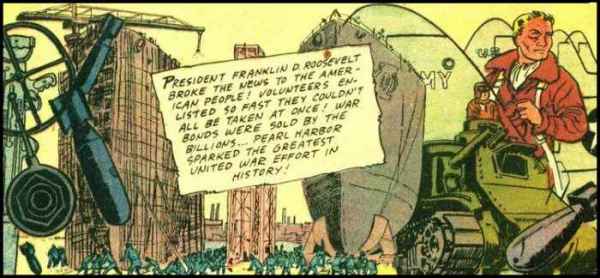
From J. Edgar Hoover: The Man and the Secrets, by Curt Gentry: In addition to his many other duties, on December 8 President Roosevelt asked J. Edgar Hoover "to take charge of all censorship arrangements." Though it was a temporary appointment, to be effective only until a director of censorship could be picked and a new agency established, Hoover took his duties seriously. In charge just a few hours, he succeeded in killing a New York Times headline which characterized the Pearl Harbor attack the worst naval defeat in US history (though it obviously was), and he "persuaded" Drew Pearson and Robert Allen to edit a "Washington Merry-Go-Round" column which gave exact details of the losses in Hawaii.
Hoover, according to a memo he sent to the presidential press secretary Steve Early, informed Pearson that if he and Allen "continued to print such inaccurate and such unpatriotic statements the Government would be compelled to appeal to their subscribers direct and bar them from all privileges that go with the relationship between the press and our government." Pearson had a different recollection of their conversation. He wrote in his diary, "I got a call from J. Edgar Hoover...in effect threatening to put me in jail unless we killed the story giving the real truth on Pearl Harbor. I told Edgar that he was nuts, that there was no law by which he could put me in jail, and that he was not the man to interpret the law. He admitted all this, said the Steve Early at the White House had called up and asked him to throw the fear of God in me."
December 8, 1941: Britain, and the Dutch government, in exile in London, declares war on Japan. From the
Joint Resolution Declaring That a State of War Exists Between The Imperial Government of Japan and the Government And the People of the United States and Making Provisions To Prosecute the Same:
Whereas the Imperial Government of Japan has committed unprovoked acts of war against the Government and the people of the United States of America: Therefore be it Resolved by the Senate and House of Representatives of the United States of America in Congress assembled, That the state of war between the United States and the Imperial Government of Japan which has thus been thrust upon the United States is hereby formally declared; and the President is hereby authorized and directed to employ the entire naval and military forces of the United States and the resources of the Government to carry on war against the imperial Government of Japan; and, to bring the conflict to a successful termination, all of the resources of the country are hereby pledged by the Congress of the United States.
December 8, 1941: From the diary of Count Galeazzo Ciano, Foreign Minister of Italy:
A night telephone call from Ribbentrop. He is overjoyed about the Japanese attack on America. He is so happy about it that I am happy with him, though I am not too sure about the final advantages of what has happened. One thing is now certain, that America will enter the conflict and that the conflict will be so long that she will be able to realize all her potential forces. This morning I told this to the Ding who had been pleased about the event. He ended by admitting that, in the long run, I may be right. Mussolini was happy, too. For a long time he has favored a definite clarification of relations between America and the Axis. (IMT)
December 8, 1941: Berlin to Tokyo
:
At 1:00 PM today I called on Foreign Minister Ribbentrop and told him our wish was to have Germany and Italy issue formal declarations of war on America at once. Ribbentrop replied that Hitler was then in the midst of a conference at general headquarters, discussing how the formalities of declaring war could be carried out so as to make a good impression on the German people, and that he would transmit your wish to him at once and do whatever he could to have it carried out promptly. At that time Ribbentrop told me that on the morning of the 8th—that is before the declaration of war—Hitler issued orders to the entire German Navy to attack American ships whenever and wherever they might meet them. It goes without saying that this is only for your secret information. (Costello II)
December 8, 1941: Berlin to Tokyo
:
Just as this very talk was in progress RIBBENTROP received the Imperial Headquarters report of the victory in which the American battleships were sunk, and was greatly delighted and praised highly the daring
of our Navy. (Costello II)
San Francisco has its first blackout, at 6.15pm.
December 9, 1941: Japanese Foreign Minister Circular:
The Imperial Japanese forces, however, right at the outset and in one heavy attack, have achieved the following: two battleships sunk, four severely damaged, four heavy cruisers severely damaged (three are confirmed), one aircraft carrier sunk and over one hundred aircraft destroyed. It may be said that the main strength of the American Pacific Fleet has been practically annihilated.
From now on the Imperial Navy will be able to extend the scope of its activities little by little to the South Atlantic and South Pacific and it is clear at least that we shall obtain command of the seas in the South Pacific before long. Even, therefore, if economic intercourse between JAPAN and the South American States bordering the Pacific be cut off for the time being, it will not be long before communication is restored. Not only so, but intercourse with ARGENTINA and BRAZIL by merchant ships in convoy will be urged upon these two countries, while sea communications with BRITAIN, AMERICA, and Latin AMERICA will, on the other hand, be severed by the Imperial Navy. (Costello II)
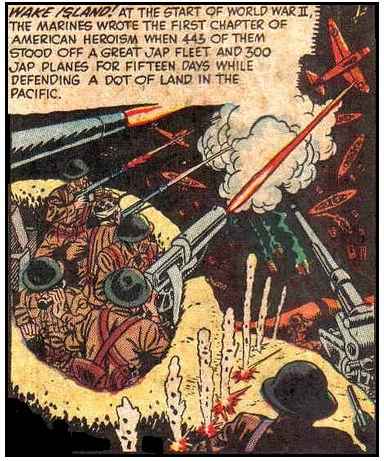
From the Diary of Lieutenant Commander Chigusa (X0 of the destroyer
Akigumo):
As we left the battlefield behind us, I felt a bit easy. All of our crew were delighted to hear news of the victory from Japan and to be on the way home without a counterattack. Today, we experience extreme rolling because of large waves. As soon as we receive an order to "Attack Midway" from Admiral Yamamoto, Commander-in-Chief of the Great Fleet, our Task Force immediately changed course toward Midway. At night officers in our wardroom were very excited over the welcome news of the sinking of two British battleships, the Repulse and the King George V.
December 9, 1941: President Roosevelt delivers a radio address from Washington:
So far, the news has all been bad. We have suffered a serious setback in Hawaii. Our forces in the Philippines, which include the brave people of that Commonwealth, are taking punishment, but are defending themselves vigorously. The reports from Guam and Wake and Midway Islands are still confused, but we must be prepared for the announcement that all these three outposts have been seized. The casualty lists of these first few days will undoubtedly be large. I deeply feel the anxiety of all families of the men in our armed forces and the relatives of people in cities which have been bombed. I can only give them my solemn promise that they will get news just as quickly as possible. This Government will put its trust in the stamina of
the American people... China formally issues a declaration of war against the Axis Powers; Japan, Germany and Italy.
December 9, 1941: From the Diary of Commander Sadamu Sanagi:
At 1330 the Enterprise with a heavy cruiser was observed sailing at 20 knots with course of 60 in the channel east of Oahu Island. Other submarines of the 1st Submarine Squadron began to chase them. (Dillon)
December 9, 1941: Two days before he declares war on the US, Hitler lifts the ban on U-boats operating in US territorial waters. This is to allow Doenitz to deploy 5 U-boats along the America's eastern seaboard in order to be ready to pounce once the declaration of war is made. (Gannon)
December 10, 1941: Japanese aircraft sink the British capital ships HMS
Repulse and HMS
Prince of Wales.
From Winston Churchill and his Inner Circle, by John Colville: Churchill believed that (First Sea Lord) Pound had the best brains in the navy. Others attributed that distinction to the Vice Chief of the Naval Staff, Vice Admiral Tom Phillips. ... Like all chairbound sailors, Phillips longed to turn his back on the Admiralty and put to sea. At the end of 1941 he had his wish and as he steamed without air cover off Malaysia, in a gallant but fruitless endeavor to intercept reported Japanese landings on the coast, his flagship, Prince of Wales, and her companion, the huge battle cruiser Repulse, were sunk by enemy torpedo bombers. Two-thirds of the men were saved, but Phillips went down with his ship.
General Ismay, who thought him an officer of exceptional ability, told me that when news of the calamity reached him, his memory went back to a meeting of the Joint Planning Staff a few years before the war. The naval representative, Captain Tom Phillips, R.N., held forth on the invulnerability of modern capital ships to air attack. It was an Admiralty theme that infuriated the Air Ministry. It was even more frequently propounded, and was only a few degrees less ridiculous, than that voiced in some War Office quarters that tanks had frequent mechanical failures whereas cavalry horses did not. On this occasion the Air Ministry representative was Air Commodore Bert Harris. According to Ismay, he thumped the table and said this: "Phillips, you make me sick. I can tell you what is going to happen. One day we shall be at war with Japan and you will be sailing across the South China seas in one of your beautiful battleships. Out of a cloud there will come a squadron of Japanese bombers and your great ship capsizes, you will turn to your navigating officer and say, 'That was a whopping great mine we hit.'"
Even by December 1941, Phillips, for all his shrewdness and ability, had failed to learn the lesson about air cover taught by many painful episodes in the preceding fifteen months. Others had been equally slow to learn, but Phillips's tragic death finally cemented in the minds of soldiers, sailors and politicians an irrefutable truth which they had known but disregarded.
December 10, 1941: Japanese forces invade the Philippines and seize Guam.
December 10, 1941: From the Diary of Lieutenant Commander Chigusa (X0 of the destroyer
Akigumo):
From early morning we experienced large swells against which the Akigumo must fight, suffering severe pitching. This bad weather made oil supply impossible for ships of the 8th Cruiser Squadron (cruisers Tone and Chikuma) and 2nd Aircraft Carrier Squadron (carriers Soryu and Hiryu) which were expected to have it in the morning. The information 'Three enemy planes are to assault you' sent us immediately to our combat stations, but we could not see a plane in sight and in a little while we were restored to our former condition...
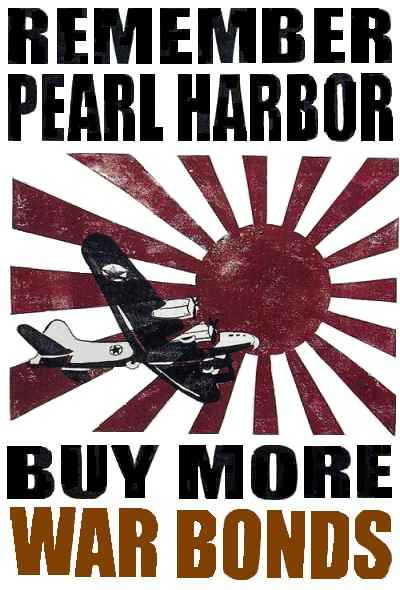
From The Devil's Disciples, by Anthony Read: The attack on Pearl Harbor came as a shock to Hitler, and to Ribbentrop, who had spent much of the previous year vainly trying to persuade the Japanese to attack the Soviet Union...Ribbentrop had become convinced that war with the United States was inevitable, and had begun urging the Japanese to move against the Americans instead...after telling Ambassador Oshima that 'he did not believe that Japan could avoid a showdown with the United States, and that the situation could hardly ever turn more favorable to Japan than it did now,' he assured him that Germany would join in immediately should Japan go to war with America. He had no idea that the Japanese fleet had already sailed from the isolated Tankan Bay in the Kurile Islands heading for Hawaii—the Germans were being kept in the dark, just as they had always kept their allies in the dark over their own invasions. ....
Drawing on an understanding of "the American soul" which he claimed to have gained during the four years he had lived there, Ribbentrop was scathing about the United States' military potential. Repeating the grave miscalculations he had made of Britain's will to fight, he now wrote off the Americans—their weapons, he claimed, were 'junk,' and they would never be able to fight in Europe—and encouraged Hitler to declare war on them at once, to pre-empt America getting in first. "A great power doesn't let itself have war declared on it, it declares war itself," he told Ernst Weizacker.
At noon on 11 December, he had the pleasure of doing so. He summoned the American Charge d'Affairs, Leland Morris, and, keeping him standing, read out a formal statement accusing President Roosevelt of inciting war through repeated violations of neutrality, belligerent attacks on German U-boats, and overt acts of war. Then, with a "sweeping gesture" he handed over the document and dismissed Morris, "who obviously felt his position keenly," with a swift bow. Immediately after Morris had left, Ribbentrop welcomed the Japanese and Italian Ambassador's, to sign an extension of the Tripartite Pact stating that none of them would make a unilateral peace with Britain or the USA. For Ribbentrop, this was the apogee of his career to date, now that the Nazi-Soviet Pact was buried and forgotten: his brainchild had become a full-scale military alliance. It was also his last significant diplomatic success.
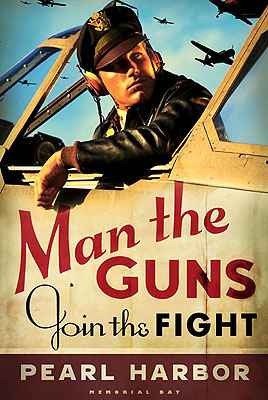
From Hitler, A Study In Tyranny, by Alan Bullock: After the invasion of the Soviet Union Ribbentrop made persistent attempts through the German Ambassador in Tokyo to persuade the Japanese to take the Germans in the rear. The one course, however, which Hitler had never recommended to the Japanese had been to attack the USA: indeed, he had constantly repeated to Matsuoka in the spring that one of the beneficial results of seizing Singapore would be to deter the Americans from entering the war. It might be expected therefore that the Fuehrer would show some irritation at the independent course adopted by the Tokyo Government in face of his advice.
On the contrary, he agreed to give the formal guarantee for which the Japanese asked and appears to have been delighted with the news of Pearl Harbor. The Japanese tactics appealed to him and he tells Oshima: 'You gave the right declaration of war. This method is the only proper one...one should strike—as hard as possible—and not waste time declaring war.' He rapidly decided to follow the Japanese example by declaring war on the United States himself. When Ribbentrop pointed out that the Tripartite Pact only bound Germany to assist Japan in the event of an attack on her by some other Power, and that to declare war on the USA would be to add to the number of Germany's opponents, Hitler dismissed these as unimportant considerations. He seems never to have weighed the possible advantages of deferring an open breach with America as long as possible and allowing the USA to become involved in a war in the Pacific which would reduce the support she was able to give Great Britain.
Hitherto, Hitler had shown considerable patience in face of the growing aid given by the US Government to the British. But he was coming to the conclusion that a virtual state of war already existed with the USA and that there was no point in delaying the clash which he regarded as inevitable. The violence of Hitler's attack on President Roosevelt in his speech of 11 December suggests the force of the resentment accumulating under the restraint he had so far practiced in his relations with America. Two other factors affected Hitler's decision. The first was his disastrous underestimate of American strength... ...The second factor is more difficult to assess. When Mussolini learned of the possibility of war between Japan and the United States, in expressing his satisfaction he made the remark: "Thus we arrive at war between the continents which I have foreseen since September 1939." The prospect of such a war embracing the whole world excited Hitler's imagination with its taste for the grandiose and stimulated that sense of historic destiny which was the drug on which he fed.
December 11, 1941: Germany and Italy declare war on the United States.
December 11, 1941: From the Diary of Lieutenant Commander Chigusa (X0 of the destroyer
Akigumo)
:
Owing to the storm the front benzene [sic] tank was taking water through a storm ventilating hole. We pumped out about two tons of water with a hand pump with great difficulty. We had the most terrible raging seas with angry waves like mountains and he largest swells we had yet seen. We must continue our stormy voyage ever rougher in spite of reducing our speed to 9 kts frequently. However, receiving good news of our successive victories, the morale of the crew became more and more elevated and they could face the storm weather with grit, thinking, "What is this? We must overcome all difficulty."
December 11, 1941: Japanese forces invade Burma.
December 11, 1941: An attempted landing by a Japanese invasion force on Wake Island is repulsed by shore-based artillery.
From The Life and Death of Adolf Hitler, by Robert Payne: Early in December, following a successful counterattack at Rostov, the Red Army snatched the initiative all along the (Eastern) front, and for the first time a shudder of fear swept through the Wolf's Lair. The Japanese attack on Pearl Harbor and the entry of America did not remove this fear. The Army high command was incredulous when Hitler took the train for Berlin to announce on December 11 that Germany was at war with the United States. It pleased Hitler to hurl abuse at President Roosevelt, who had not fought as a common soldier in World War 1 (as had Hitler) but had enjoyed all the luxuries of the upper class. He announced that the entry of America into the war would make very little difference to the final outcome. He spoke as though the entry of America into the war was a matter of no importance at all.
December 11, 1941: Hitler addresses the Reichstag:
And now permit me to define my attitude to that other world, which has its representative in that man, who, while our soldiers are fighting in snow and ice, very tactfully likes to make his chats from the fireside, the man who is the main culprit of this war...As a consequence of the further extension of President Roosevelt's policy, which is aimed at unrestricted world domination and dictatorship, the USA, together with England have not hesitated from using any means to dispute the rights of the German, Italian, and Japanese nations to the basis of their natural existence. The Governments of the USA and of England have therefore resisted, not only now, but also for all time, every just understanding meant to bring about a better New Order in the world. Since the beginning of the war the American President, Roosevelt, has been guilty of a series of the worst crimes
against international law... From Franklin and Winston, by Jon Meacham: Why did Hitler do it? Partly because he misjudged Roosevelt and America. "I don't see much future for the Americans," Hitler said in January 1942. "It's a decayed country. And they have their racial problem, and the problem of social inequities. .... My feelings against Americanism are feelings of hatred and deep repugnance...Everything about the behavior of American society reveal that it is half Judaized, and the other half Negrified. How can one expect a state like that to hold together—a country where everything is built on the dollar."
He had not counted on Churchill's stalwart defense of Britain in 1940; now, as 1941 drew to a close, he did not count on Roosevelt's strength and determination. It was one of Hitler's many mistakes, and one from which he could never recover. "The Great Republic" was at war at last. Through the ensuing decades of what Henry Luce, founder of the Time-Life magazine empire, would call "the American Century," a national myth took shape about World War II; that she fought to defeat Hitler and to preserve democracy. And America did—ultimately.. Yet the United States hit back only when it was, as Roosevelt said on December 8, "suddenly and deliberately attacked by...the Empire of Japan" and entered the war against Germany only when it was clear that Hitler would join Tokyo's fight.
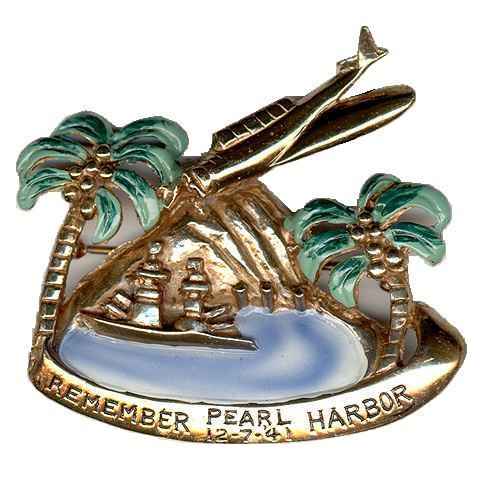
From the diary of Charles Lindbergh:
Now, all that I feared would happen has happened. We are at war all over the world, and we are unprepared for it from either a spiritual or material standpoint...We haven't even a clear idea of what we are fighting to attain.
December 11, 1941: From the Diary of Rear Admiral Giichi Nakahara:
...well-protected islands are strong, as our war result shows. As the island is so small, our forces are supposed to land on it during this week. But it is very difficult to wholly destroy such an island though we can easily bombard or bomb those enemy gun positions. If such an island is guarded by submarines, we shall be all the more in a disadvantageous position in carrying out our operation against the island, and it the same time, the occupation of such an island will not be easy if the circumstances were thus that supporting enemy forces
are coming there... (Dillon)
From the Diary of Lieutenant Commander Chigusa (X0 of the destroyer
Akigumo):
Stormy weather continued again throughout today. The south wind changed to a northerly wind of over 15 m (30 kts). Owing to the enormous angry waves rising like mountains over it, we suffered from terrible, big pitchings. We lost sight of even the gigantic figures of our aircraft carrier sailing just 500 meters ahead of my ship. When my ship plunged to the bottom of each wave to the top of it, the bridge was completely enveloped in waves like a diving submarine. The large ships, sailing ahead of us, looked as though they were not suffering so much from the stormy weather. On the contrary, the scene of the Akigumo, a small ship of 2,500 T at the mercy of the waves, was just like a leaf as she continued her desperate struggle which was utterly beyond description. It took the greatest effort to keep standing on the bridge under the repeatedly rough and difficult sailing. We passed through the sea area 700 M north of Midway today. We also crossed the dateline to the west.
December 13, 1941: From the Diary of Rear Admiral Giichi Nakahara:
On the strength of our success at Pearl Harbor we should occupy Hawaii now, some people say. It goes without saying that it is the best policy to take Hawaii to decide the future of the Pacific. If we lose a day in occupying the Islands, our operation to capture them will be so much the more difficult. Our experience at Wake Island shows this. However, if we fail in this, the tables will be turned favorable to the United States again in a minute. So it cannot be
done so hastily... (Dillon)
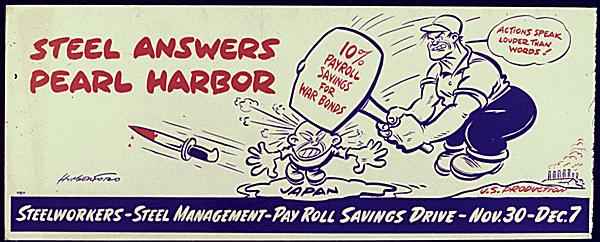
From Ribbentrop's IMT testimony: When the news of Pearl Harbor came, the Fuehrer had to make a decision. The text of the Tripartite Pact bound us to assist Japan only in case of an attack against Japan herself. I went to see the Fuehrer, explained the legal aspect of the situation and told him that, although we welcomed a new ally against England, it meant we had a new opponent to deal with as well, or would have one to deal with if we declared war on the United States. The Fuehrer then decided that the United States had already fired upon our ships and thereby had practically created a state of war; that it was therefore only a question of form, or, at least, that this official state of war might supervene at any moment, as a result of an incident; and that in the long run it was impossible that this state of affairs in the Atlantic continue without a German-American war.
He then instructed me to draft a note—which he subsequently altered—and to hand the American Ambassador his papers...We naturally had close co-operation with Italy. By that I mean that in the further course of war, we were forced to all intents and purposes to take charge of all military operations there ourselves, or, at least, to take joint charge of them. Co-operation with Japan was very difficult, for the simple reason that we could communicate with the Japanese Government only by air. We had contact with them from time to time through U-boats, but there was no co-ordinated military or political plan of campaign. I believe that on this point General Marshall's view is correct, namely, that there was no close strategic co-operation or planning of any kind; and, really, there was not any.
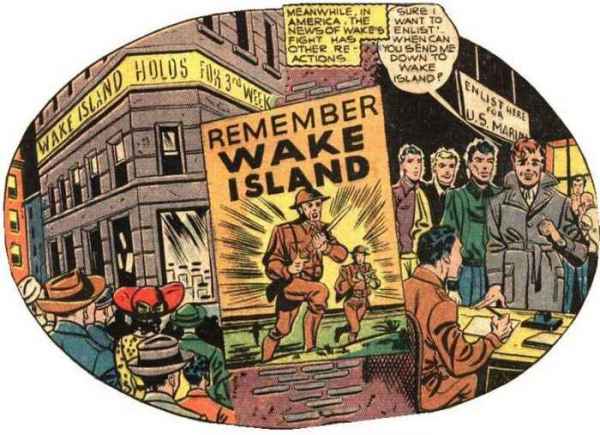
From the Diary of Lieutenant Commander Chigusa (X0 of the destroyer
Akigumo):
One week has now passed since the attack on Pearl Harbor. My heart was filled with deep emotion when I became lost in thought of "X" day. The wind changed to westerly and the weather turned poor from the morning. It took about 30 minutes to take on a supply of 150 T oil from the Shinkoku Maru. As soon as the oil supply was completed, we turned south without delay at news that 'The operations against Wake Island is delayed.' For the sake of supporting the capture of Wake Island, our operation against Midway was cancelled. After a long interval, I now shaved and washed my underwear. All fresh oranges (tangerines) in stock were exhausted today.
December 14, 1941: From a letter by Senator Harry Truman to his cousin, Ethel Nowland:
I have been afraid it would come but not the way it did. We're always surprised, of course when the unexpected happens—if it's war anyway... ...Then on the 11th we had to accept another invitation from Germany and Italy. Goodness knows where it will end. I wish I was thirty and in command of a Battery. It would be a lot easier.
December 14, 1941: The notes of a conference between Hitler and Japanese Ambassador Oshima, held in the presence of Reich Foreign Minister Ribbentrop.
First the Fuehrer presents Ambassador Oshima with the Grand Cross of the Order of Merit of the German Eagle in gold. With cordial words he acknowledges his services in the achievement of German-Japanese cooperation, which has now obtained its culmination in a close brotherhood of arms. General Oshima expresses his thanks for the great honor and emphasizes how glad he is that this brotherhood of arms has now come about between Germany and Japan.
The Fuehrer continues: "You gave the right declaration of war." This method is the only proper one. Japan pursued it formerly and it corresponds with his own system, that is, to negotiate as long as possible. But if one sees the other is interested only in putting one of, in shamming and humiliating one, and is not willing to come to an agreement, then one should strike as hard as possible, indeed, and not waste time declaring war. It was heartwarming to him to hear of the first operations of the Japanese. He himself negotiated with infinite patience at times, for example, with Poland and also with Russia. When he then realized that the other did not want to come to an agreement, he struck suddenly and without formality. He would continue to go on this way in the future. (IMT)
From Adolf Hitler, by John Toland: One reason Hitler had delayed implementing the Final Solution was hope that his implied threat to exterminate the Jews would keep Roosevelt out of the war. But Pearl Harbor ended this faint expectation and Hitler's hope turned to bitterness, with extermination becoming a form of international reprisal. The decision taken, the Fuehrer made it known to those entrusted with the Final Solution that the killings should be done as humanely as possible. This was in line with his conviction that he was observing God's injunction to cleanse the world of vermin.
Still a member in good standing of the Church of Rome despite detestation of its hierarchy ("I am now as before a Catholic and will always remain so."), he carried within him its teaching that the Jew was the killer of God. The extermination, therefore, could be done without a hint of conscience since he was merely acting as the avenging hand of God—so long as it was done impersonally, without cruelty. Himmler was pleased to murder with mercy. He ordered technical experts to devise gas chambers which could eliminate masses of Jews efficiently and "humanely," then crowded the victims into boxcars and sent them east to stay on ghettos until the killing centers in Poland were completed.
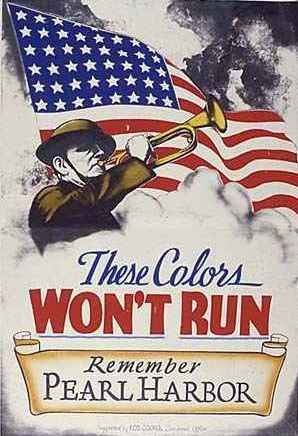
Exactly one week after the Pearl Harbor attack, Secretary of the Navy Knox issues a formal statement:
The United States services were not on the alert against a surprise air attack on Hawaii. This fact calls for a formal investigation which will be initiated immediately by the President. Further action is, of course, dependant on the facts and recommendations made by this investigating board. We are entitled to know if (a) there was any error of judgement which contributed to the surprise, (b) if there was any dereliction of duty prior to the attack." He then reads from a misleading list, composed by FDR himself, of the American ships lost in the attack. Knox says that 3 destroyers, an old minelayer, the target ship Utah, and the battleship Arizona were the only losses suffered. (Note: The graphic below was published about one year after the attack.)
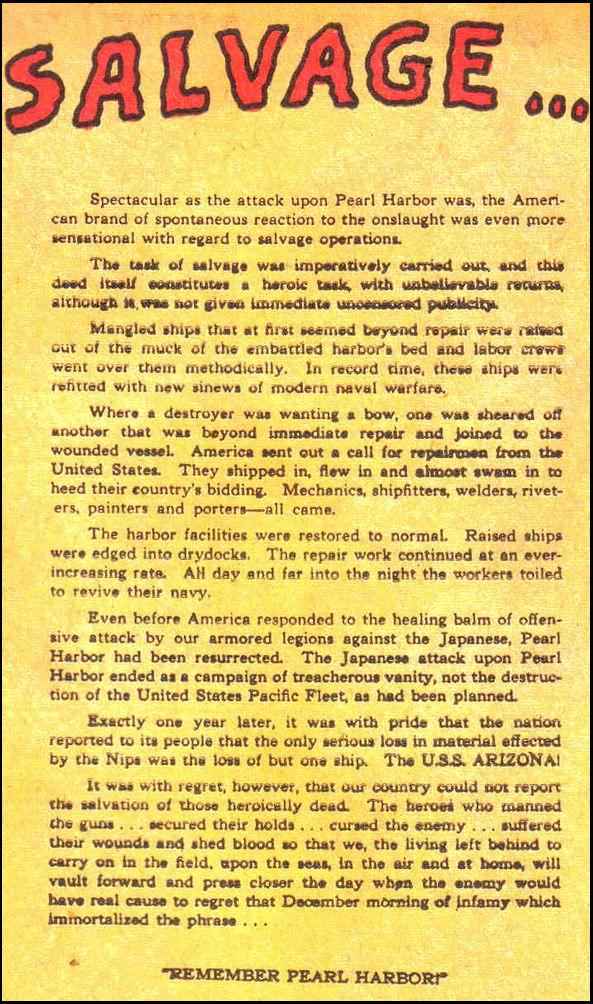
From The Crucial Years: 1939-1941, by Hanson W. Baldwin: From the flames and the many circumstantial bits and pieces of those days, revisionist historians have created a "great conspiracy" theory of Pearl Harbor, a complete fabric of deception. President Roosevelt, it is alleged, deliberately planned Pearl Harbor as a means of ensuring US entry into World War 2. Roosevelt and his military commanders in Washington (Marshall and Stark) knew beforehand of the impending Japanese attack, the theory goes, and deliberately withheld the information from Kimmel and Short.
The terse answer to such allegations is baloney. Roosevelt, it is true, was a political manipulator; he had flouted, circumvented, or with congressional approval revised the neutrality legislation of 1935-37 (which had, at the time, the overwhelming support of the American people). He often said one thing and did another; he did not hesitate to deceive the public. He believed strongly that the United States must for its own salvation enter World War 2; he had ordered actions in the Atlantic, most of them ultimately approved by Congress but many after the event, which had already resulted in an undeclared limited war against Germany; and he had stressed that he wanted Japan to fire the first shot, strike the first blow. (Ironically, it was the United States that fired the first shot against a midget submarine outside Pearl Harbor early on December 7.)
At almost the eleventh hour in the Pacific (on December 1) Roosevelt had ordered Admiral Hart in Manila through Stark to charter three small vessels for "a defensive information patrol" off the Indochina coast. They were to have an identity as "US men-of-war" and were to be commanded by a naval officer. These "small vessels" may well have been intended as "tethered goats" to lure the tiger of Japanese aggression, on the theory—then widely believed in Washington—that Tokyo would bypass the Philippines and attack British and Dutch possessions only. The sinking by the Japanese of any of the three little ships would serve, the theory held, as another Panay Incident, an excuse for US hostilities.
In the event, the "three small vessels" were never employed in their intended role; the Japanese struck too soon, and the Philippine Islands were one of their objectives. In short, Roosevelt undoubtedly believed, like millions of Americans, that the United States' vital interests required the nations' entry into the war, and in order to convince a large and reluctant portion of public opinion, he wanted the Japanese to strike first. But all this proves no monstrous plot or heinous culpability.
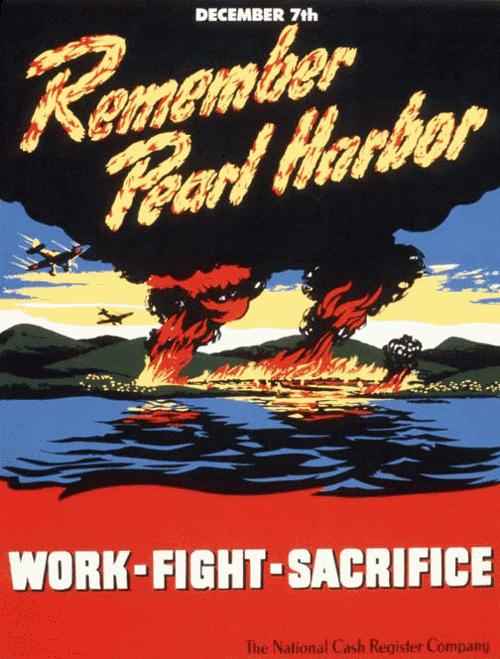
From The Undeclared War, by William L Langer and S. Everett Gleason: Ever since the outbreak of the war in Europe, and indeed before it, most Americans had contemplated with resignation the day when the United States would join in hostilities against the Axis powers. In response to the logic of events, at least as much as to the leadership of the President, an ever increasing number had come to feel that it was not merely their country's hapless fate but its bounden duty to enter the great conflict. The dimensions of America's stake in the outcome had been measured by its Government and its citizens over a period of more than two years. The significance of each momentous step taken along the road which from the start so many believed destiny would compel the nation to follow had been debated in congress, over the air, in the press, and from the platform.
Whatever, therefore, the final judgement on the wisdom of America's involvement in the global war, the indictment or the vindication must encompass the whole American people. It was not only the swift disaster at Pearl Harbor which explain the sobriety and even the grimness with which the United States now set its wartime course. The steadfastness and valor of all those warring peoples who were presently to become the United Nations had afforded the American democracy a unique opportunity, by democratic process, to appraise and at long last to respond to the appeal for leadership in the struggle. Without the elation of 1917, but surely with profounder understanding of the values it sought to preserve, the New World again advanced to rescue the old.
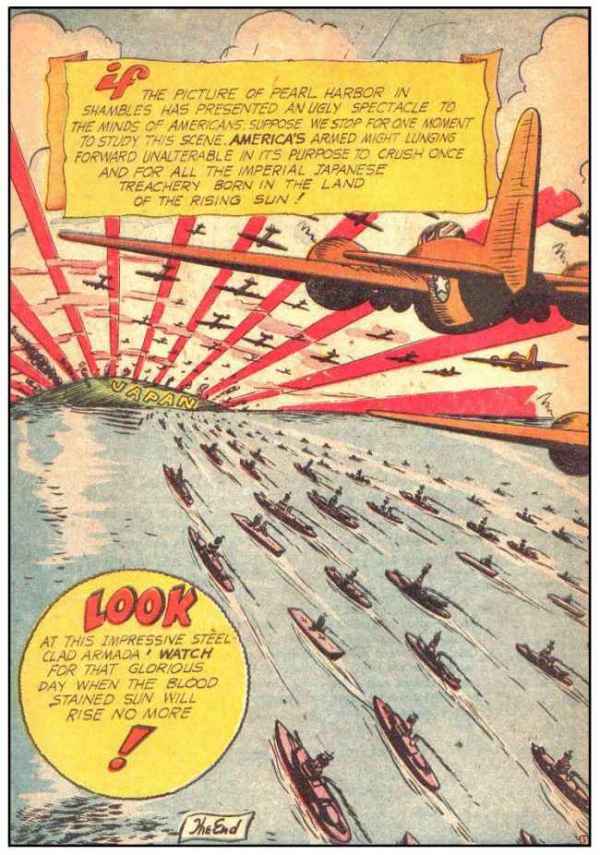


 Part Two!
Part Two!
 Part One!
Part One!






 Twitter: @3rdReichStudies
Twitter: @3rdReichStudies
















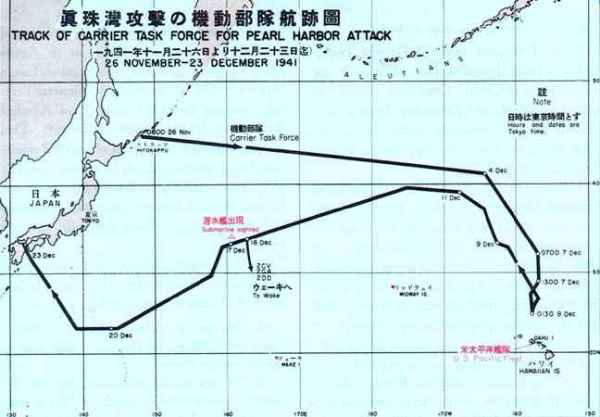

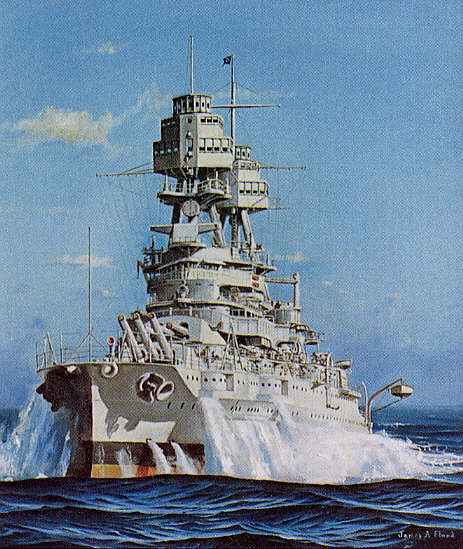
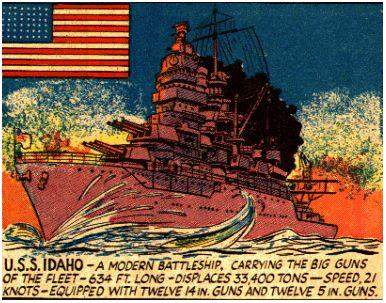
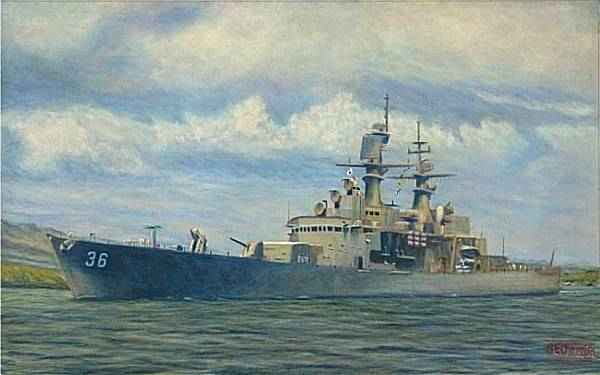
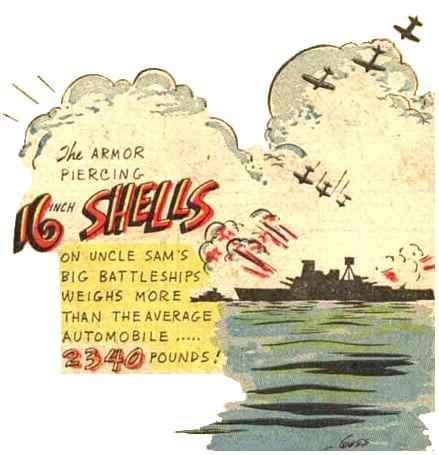
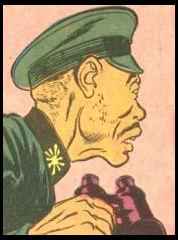
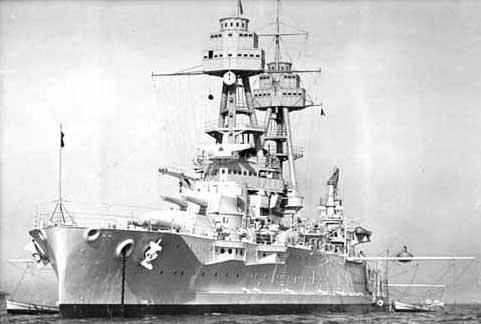
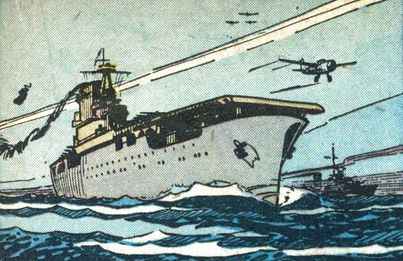
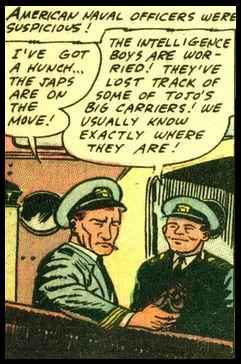
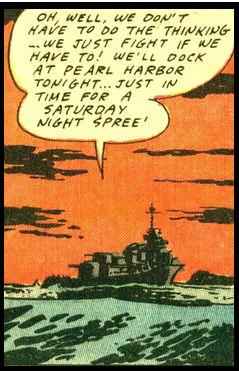
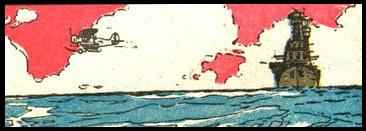

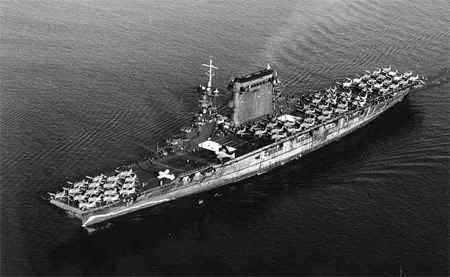
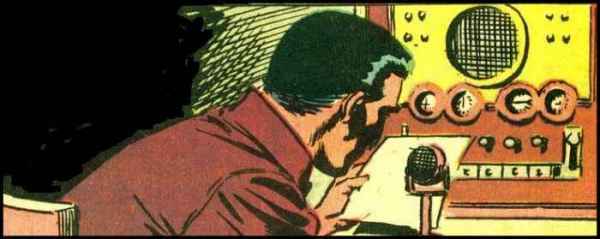
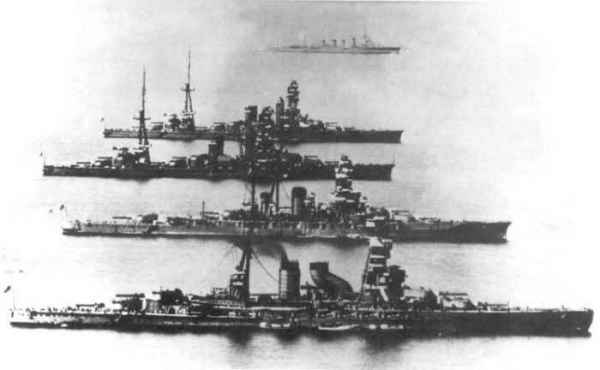
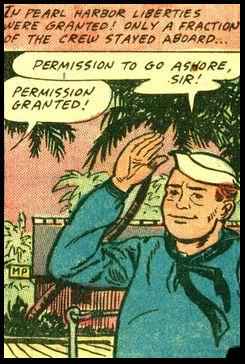
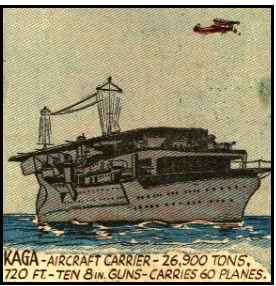
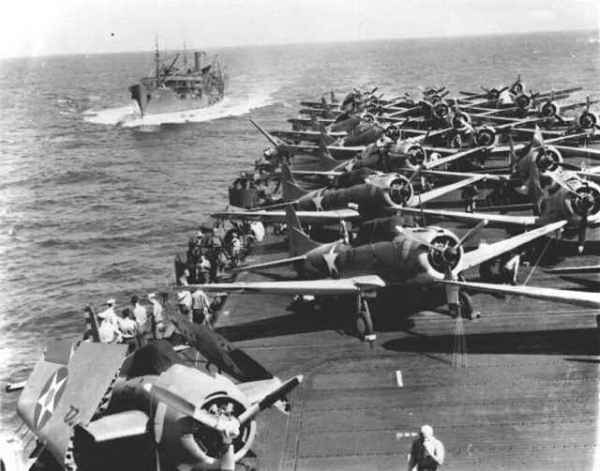
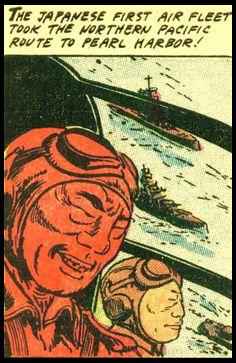
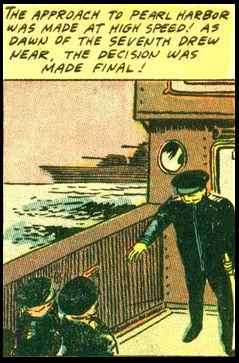

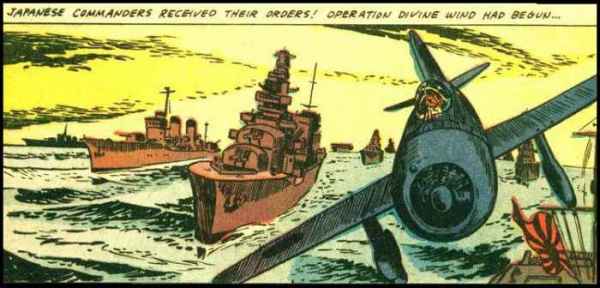

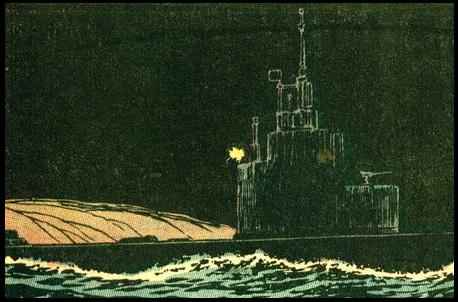
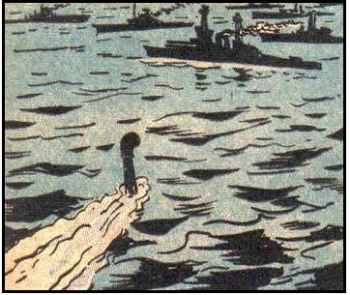
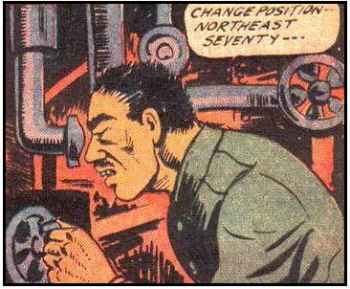
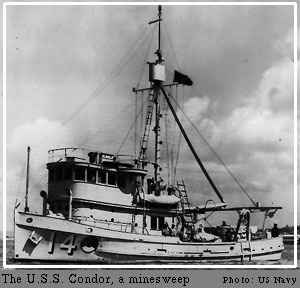

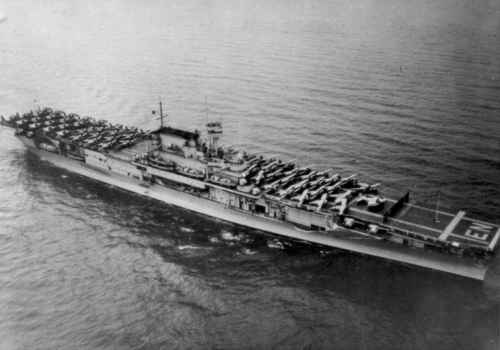
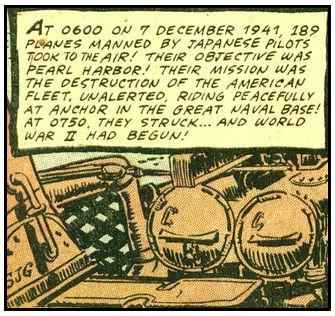
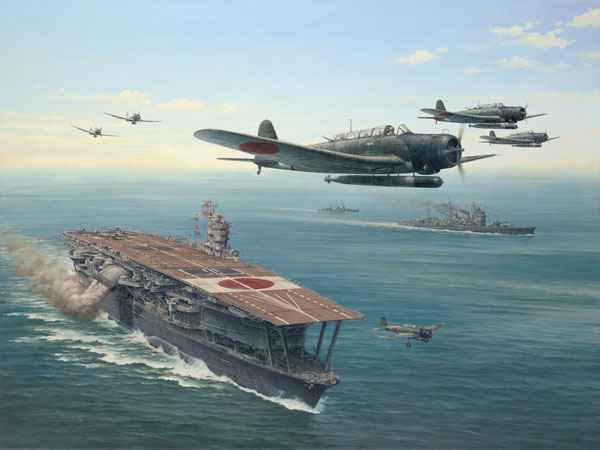
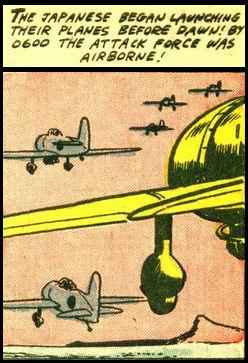
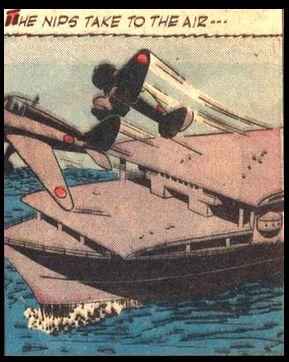
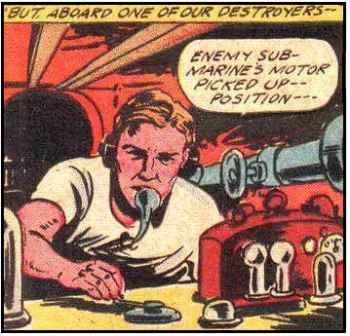
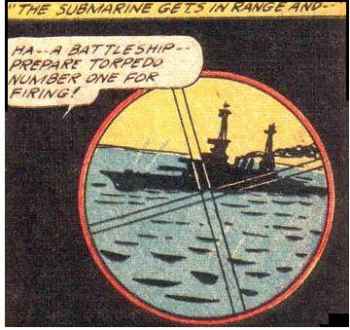
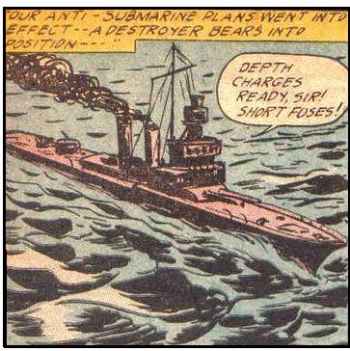
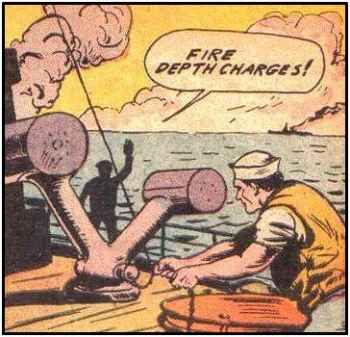
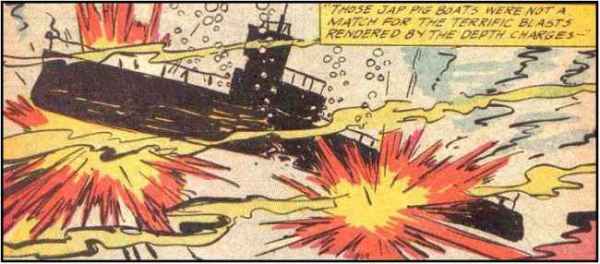
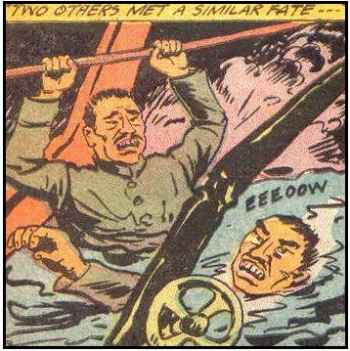
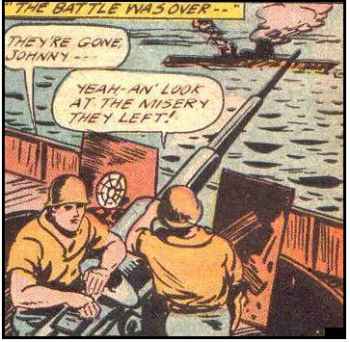
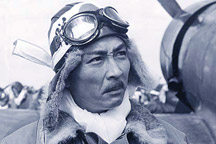
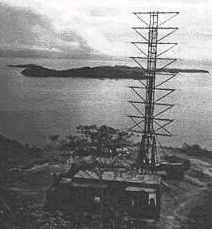
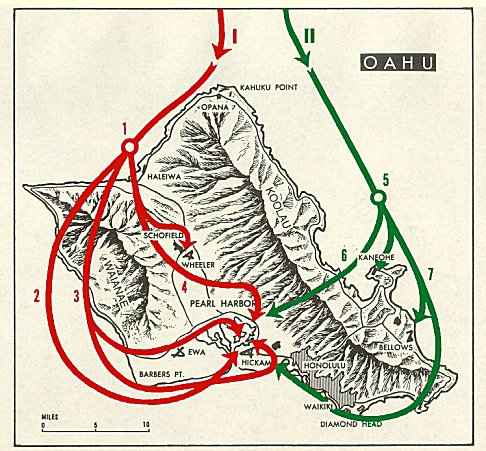
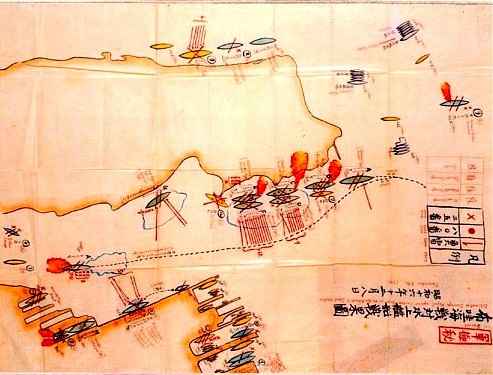
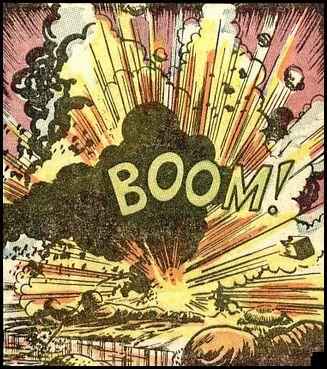
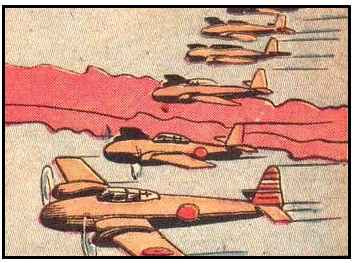
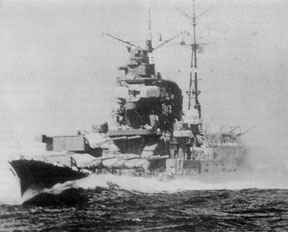
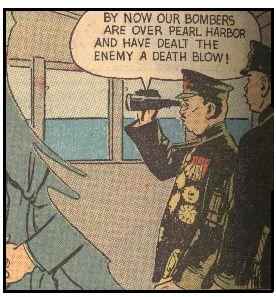
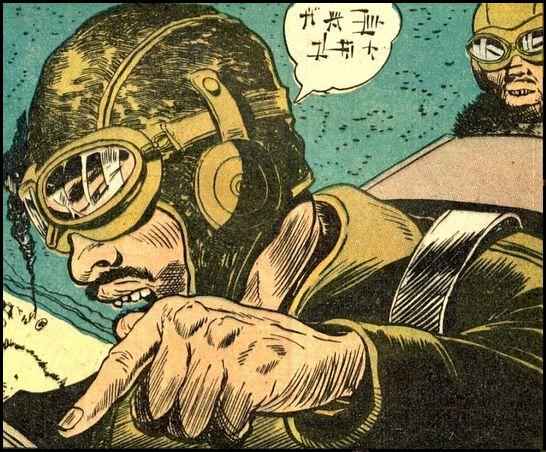
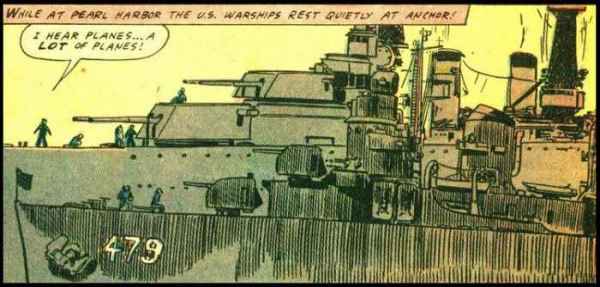
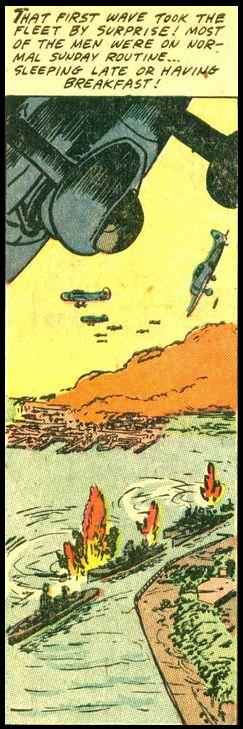

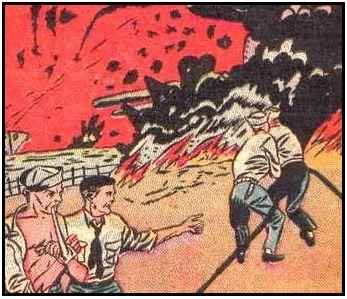
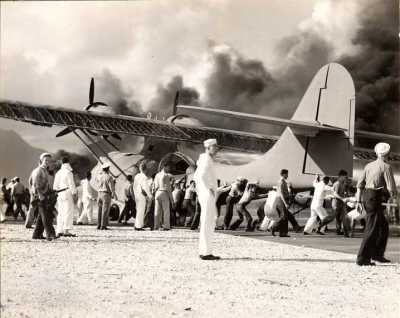
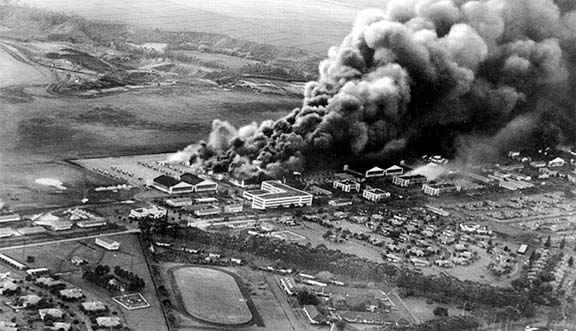
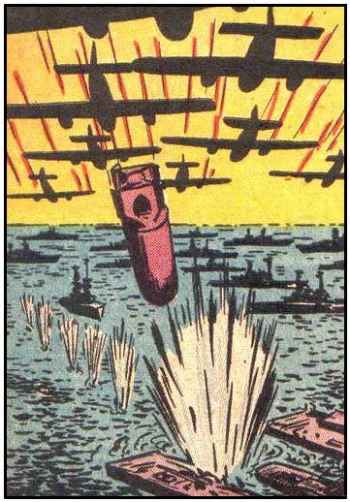
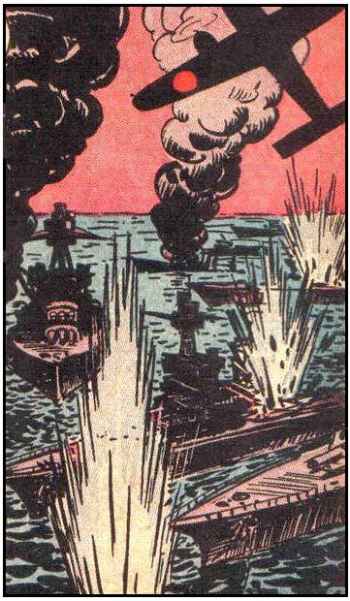
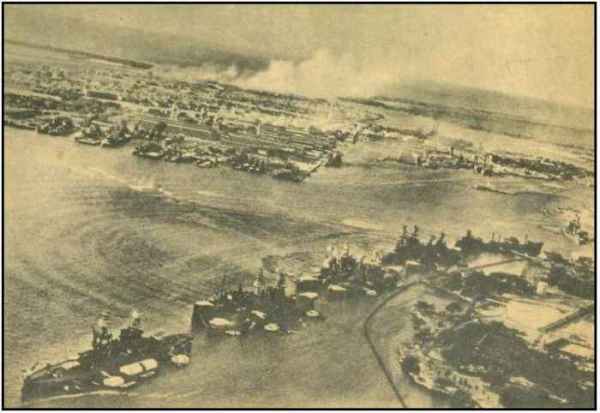
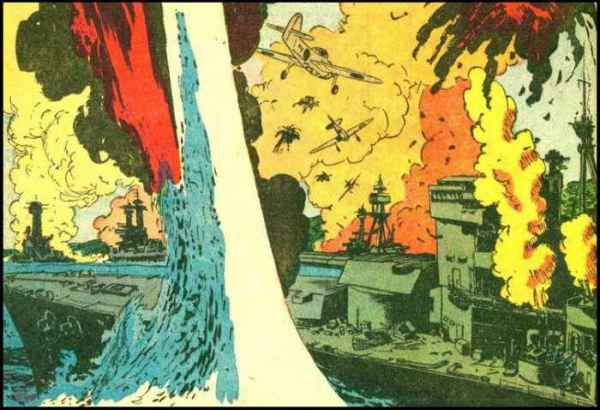
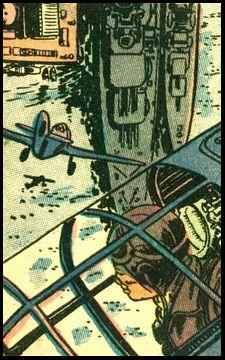
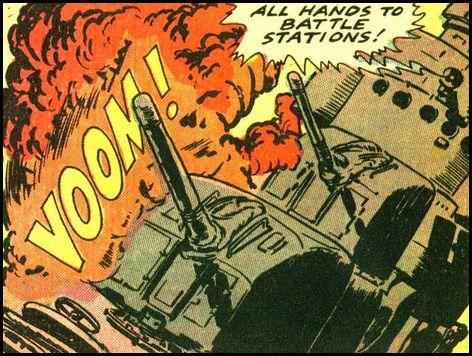
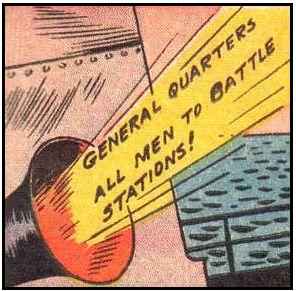
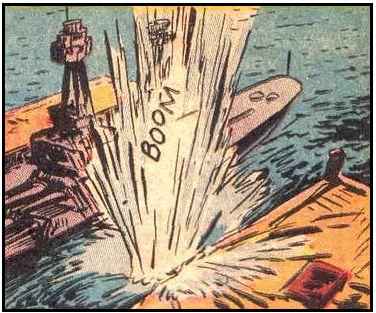
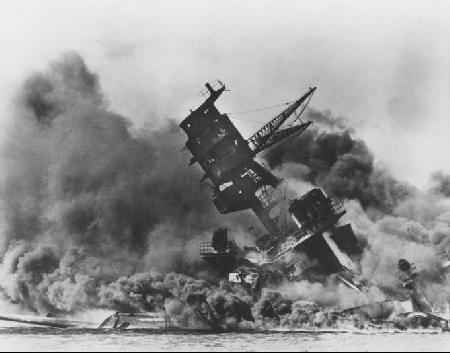
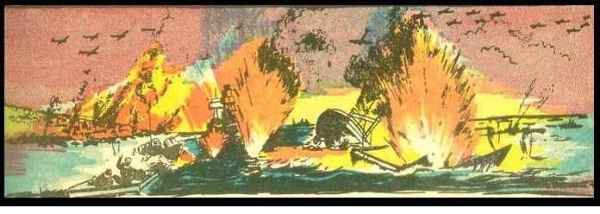
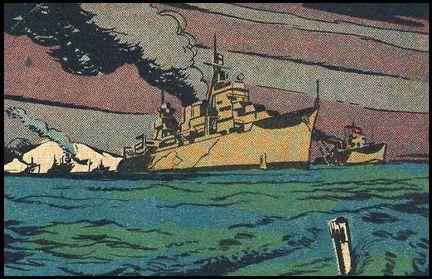
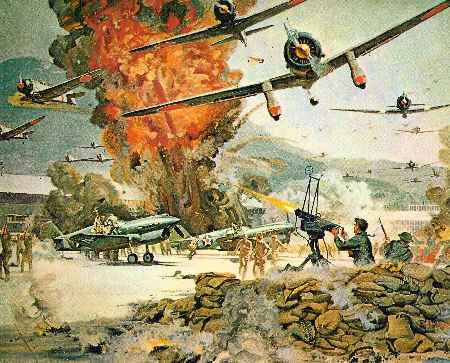
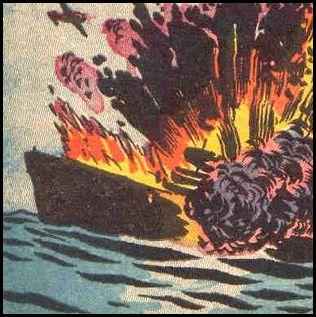
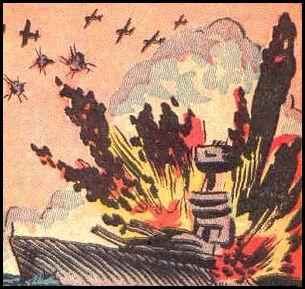
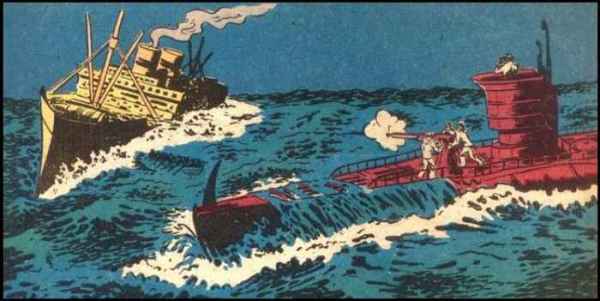
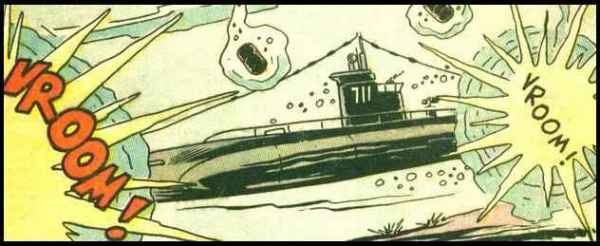
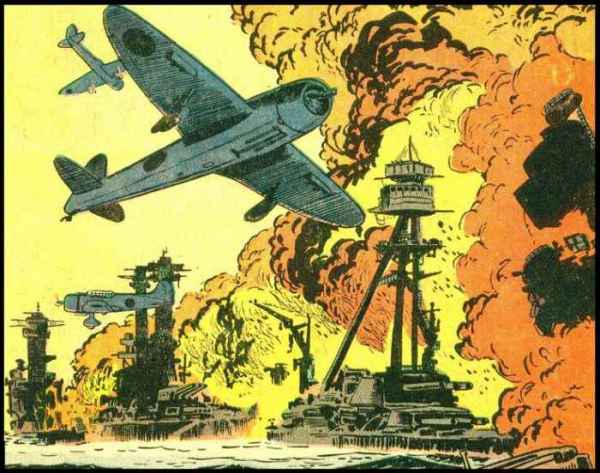
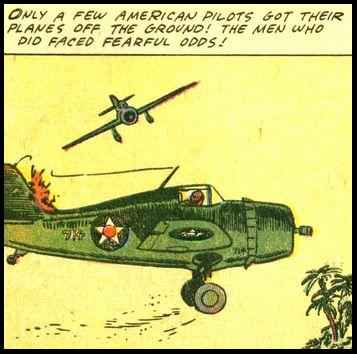
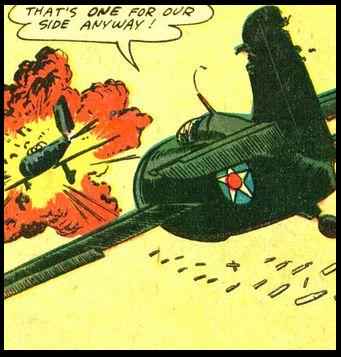
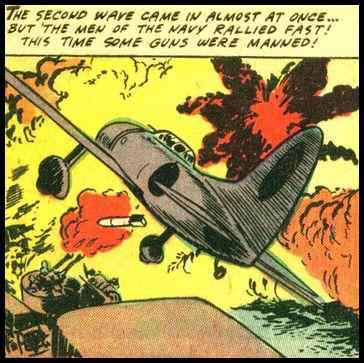
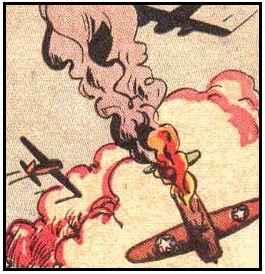
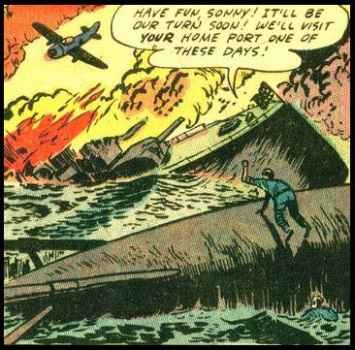
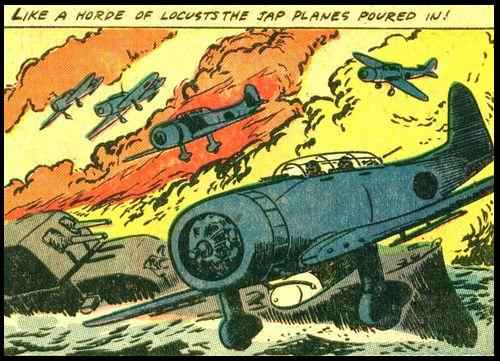
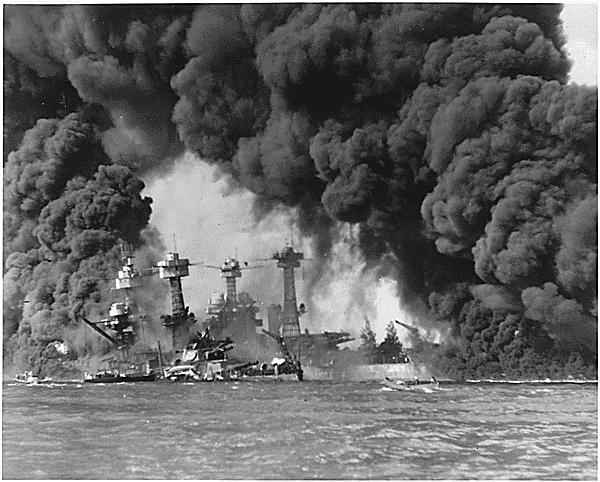
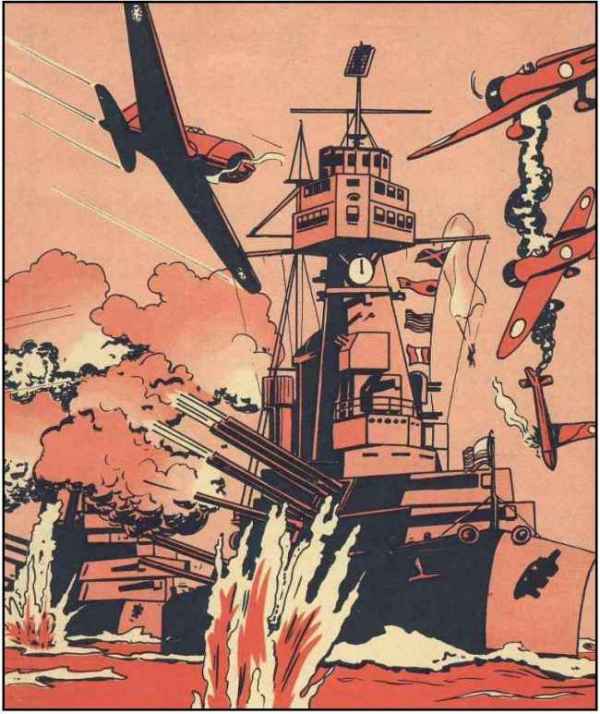
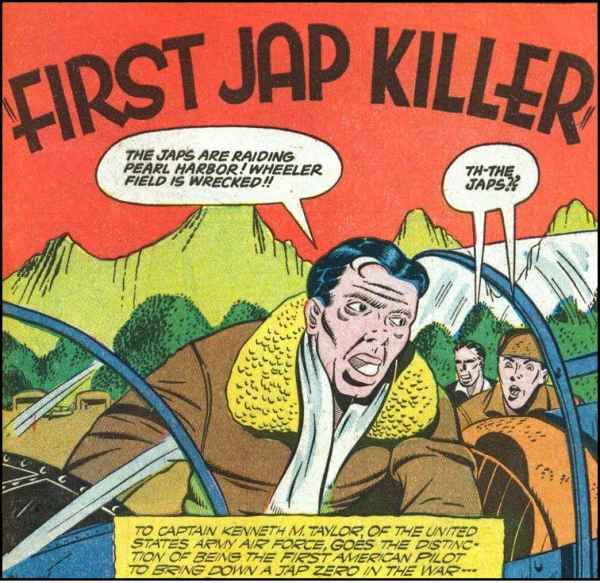
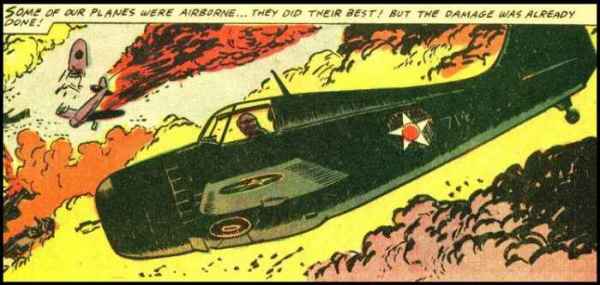

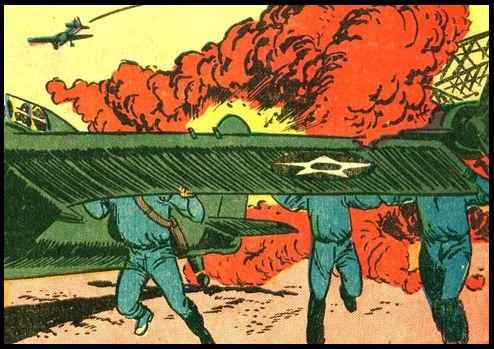
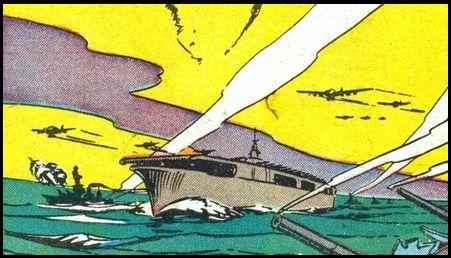
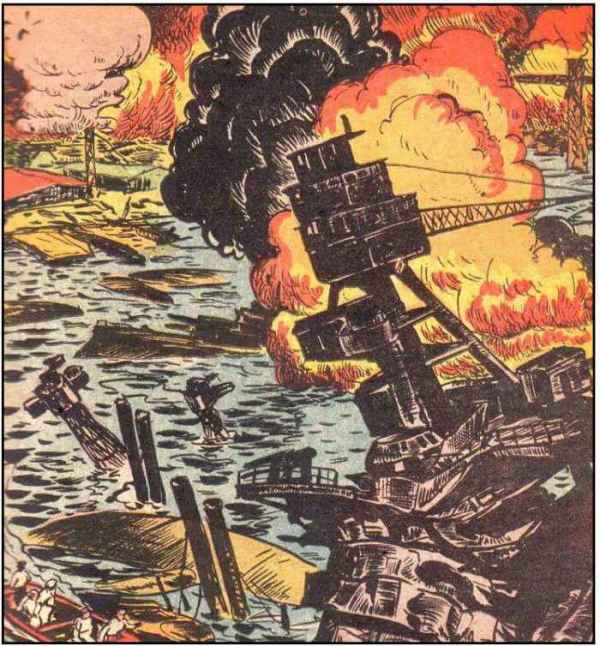
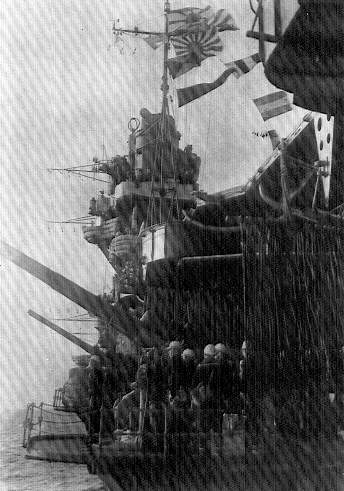
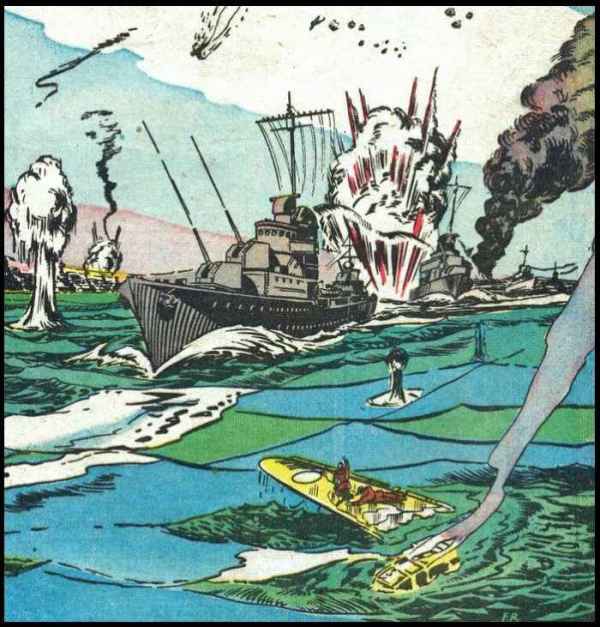
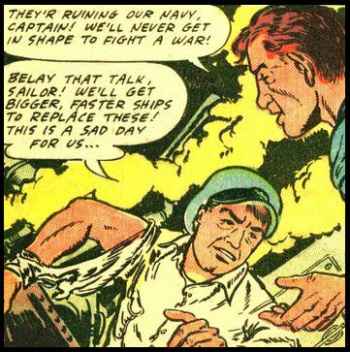
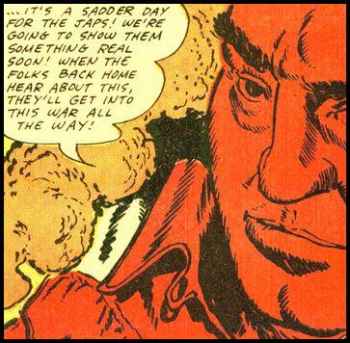


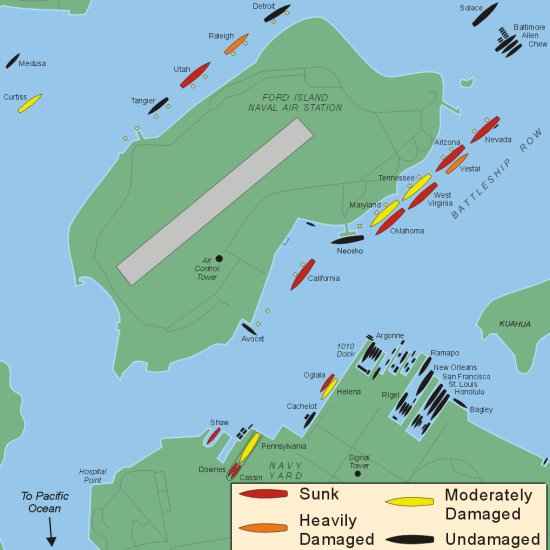
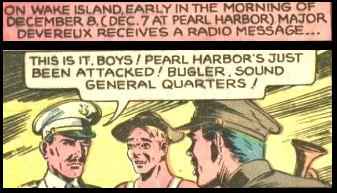
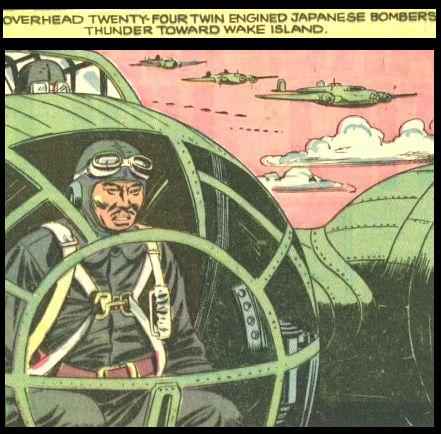
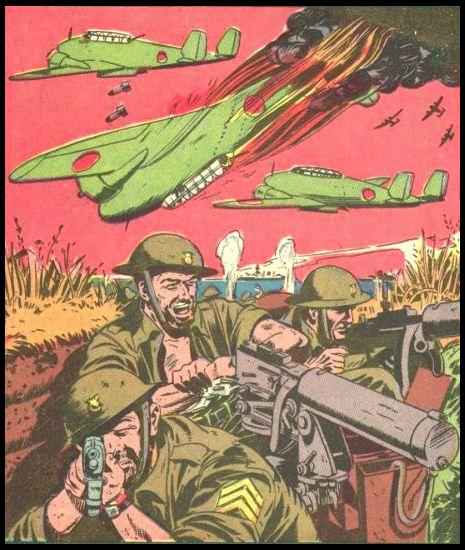
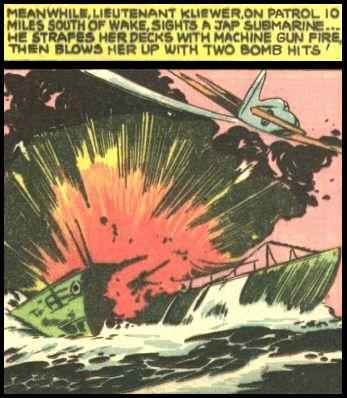

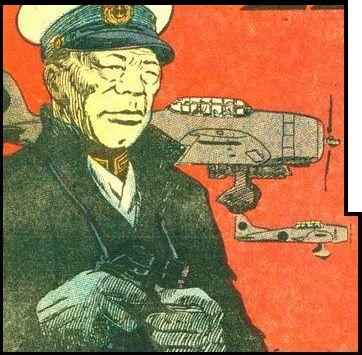

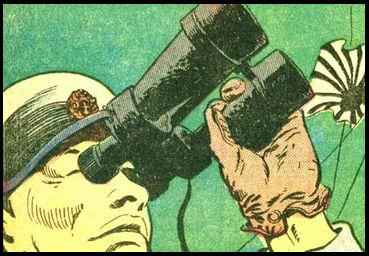



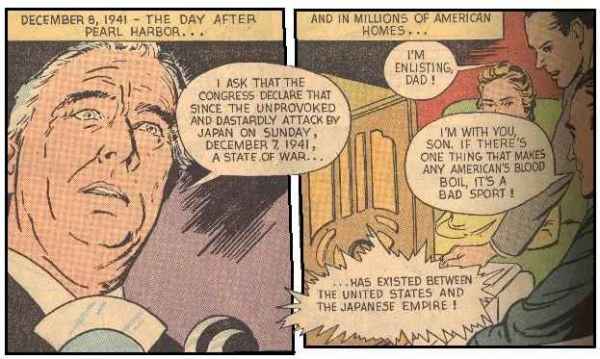

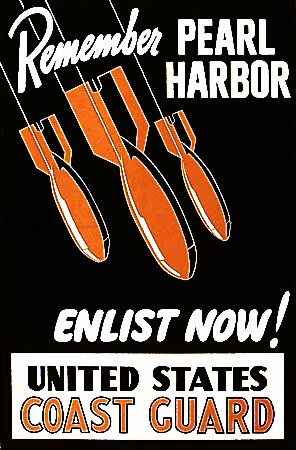
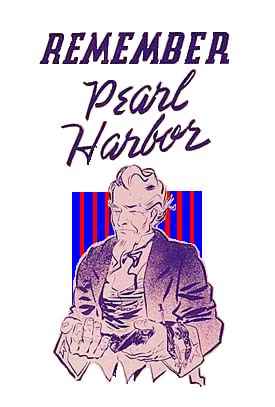
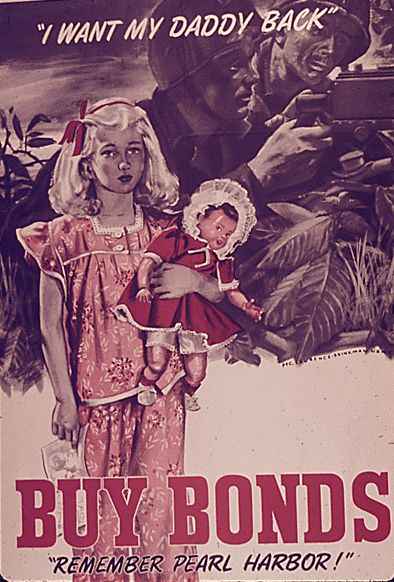
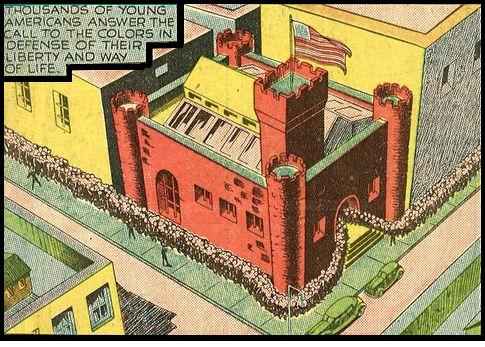
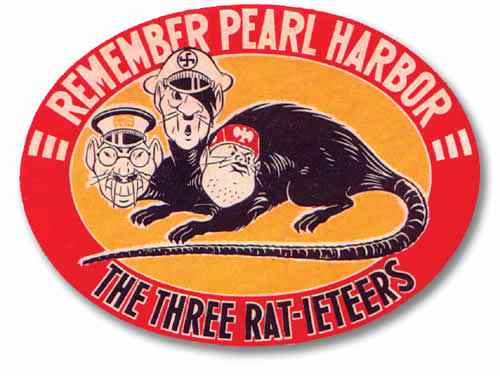

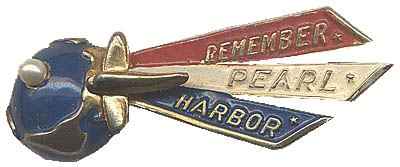
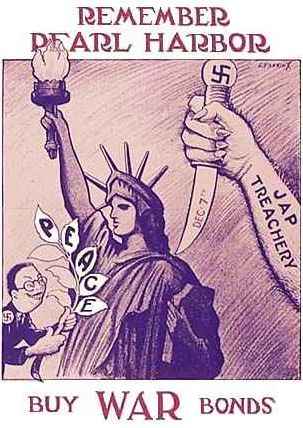
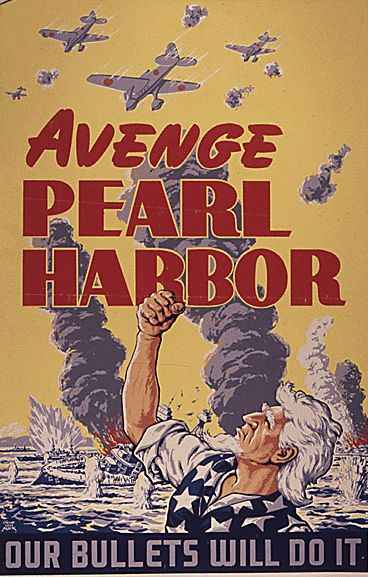
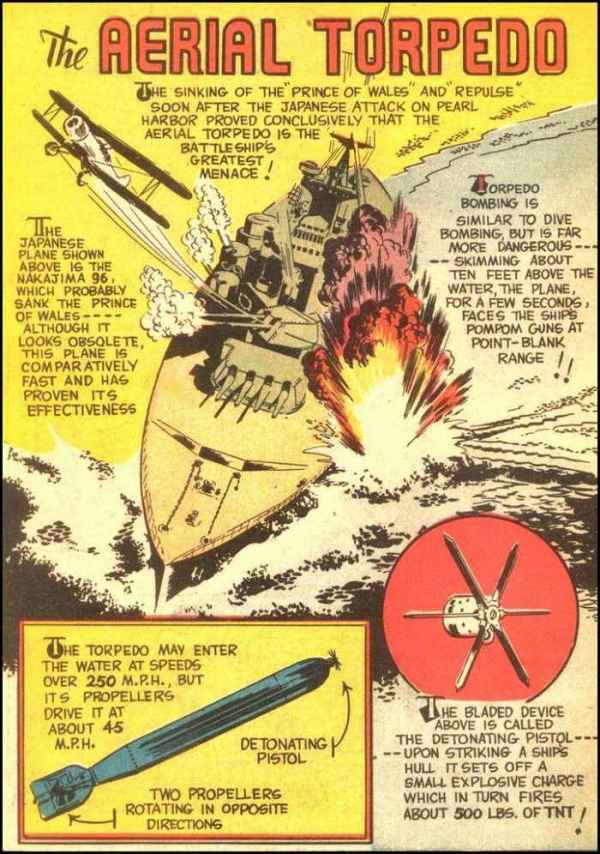


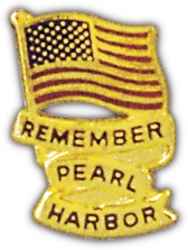
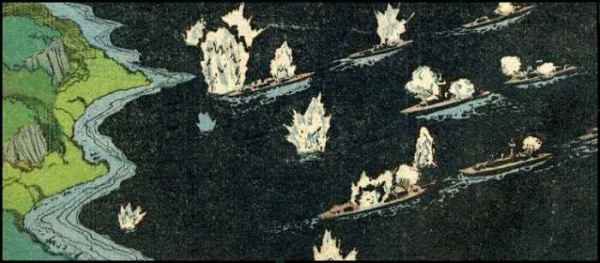
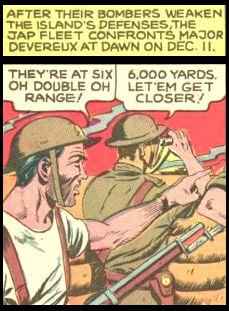
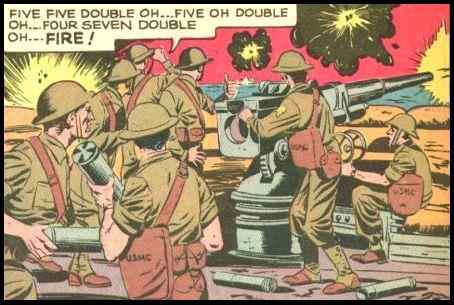
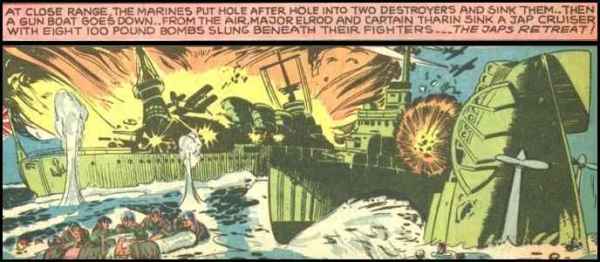
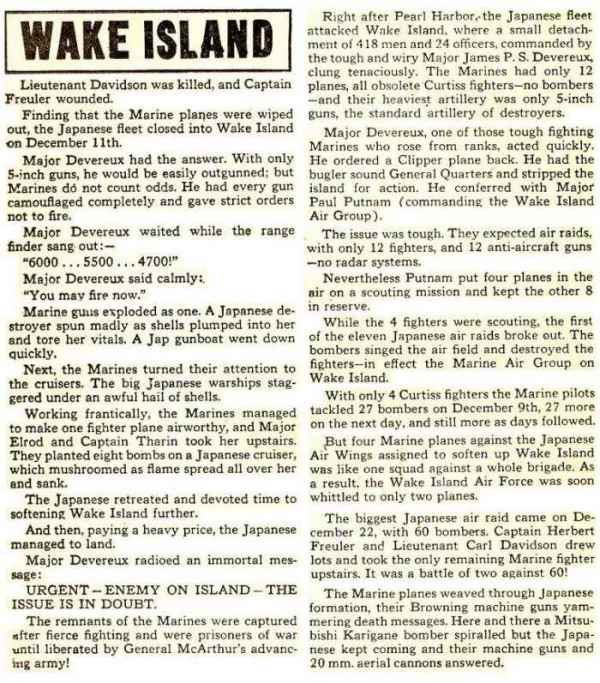
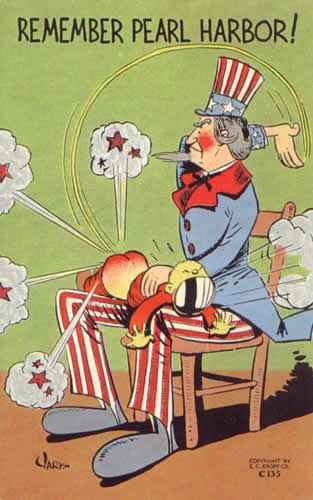

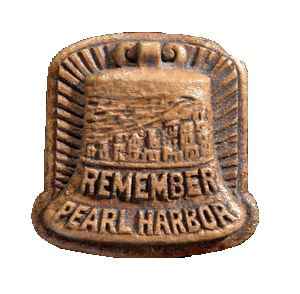
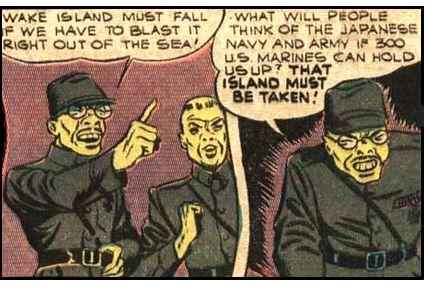


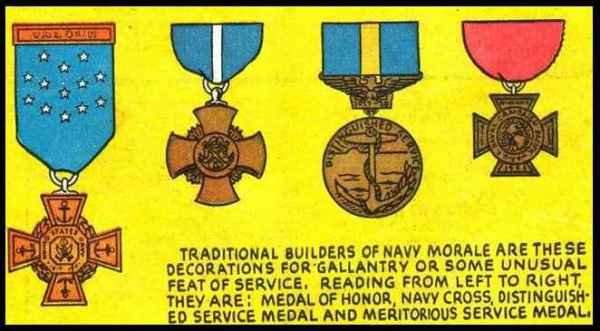
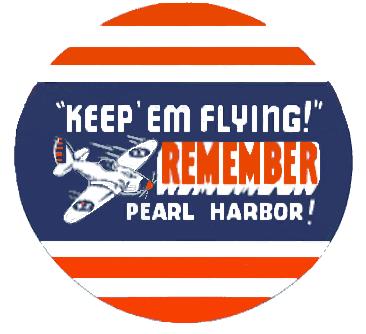





Part Two!
Part One!





Twitter: @3rdReichStudies



>







